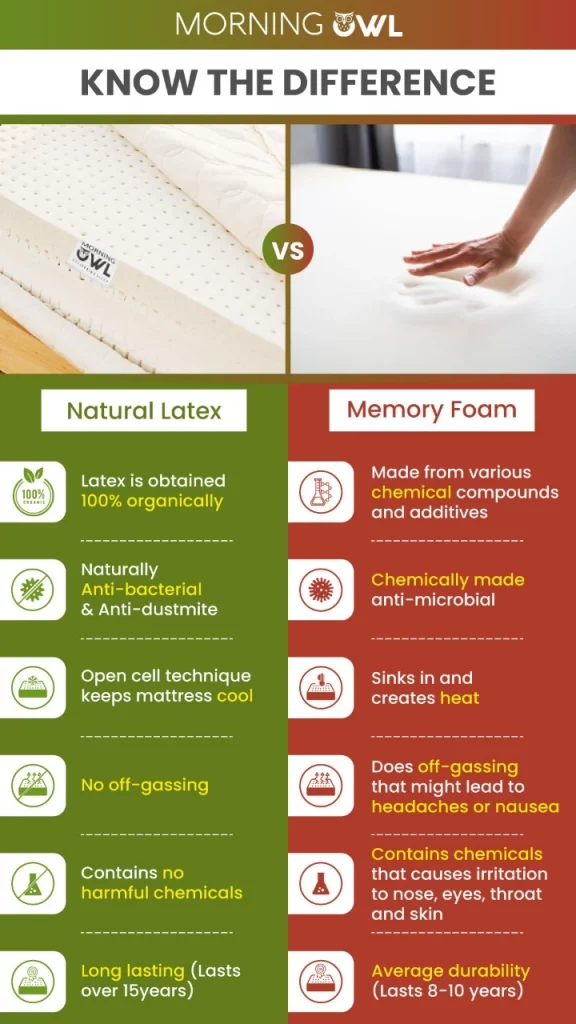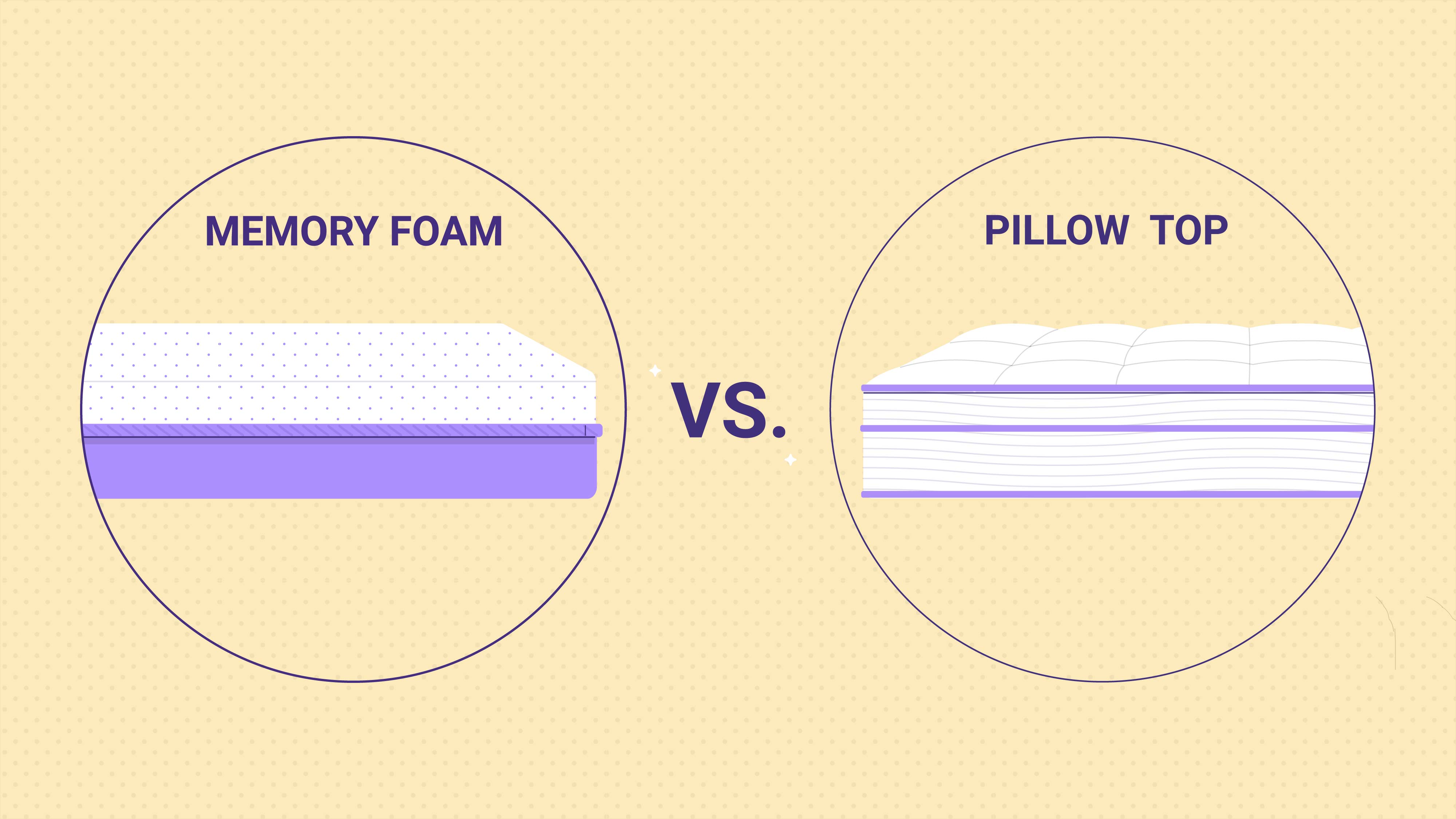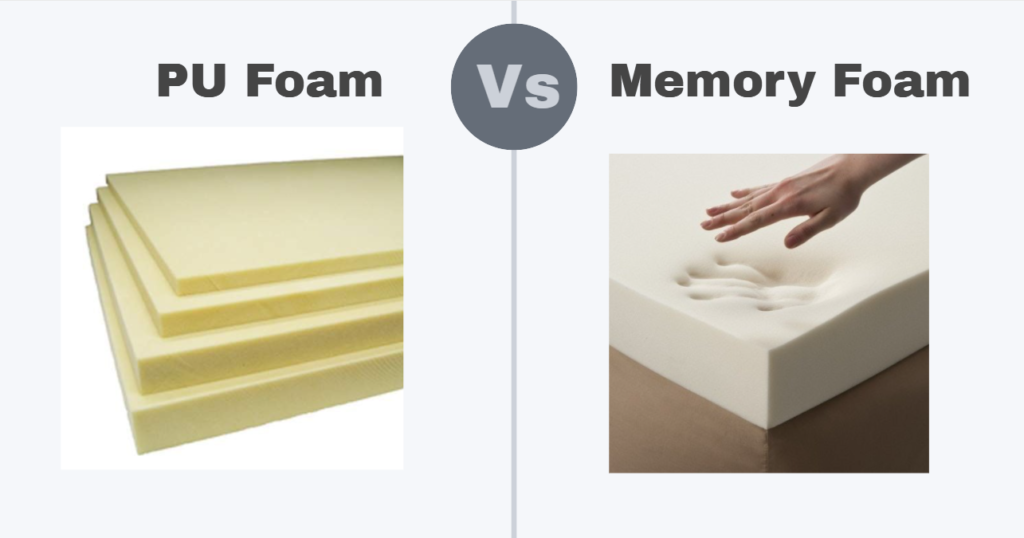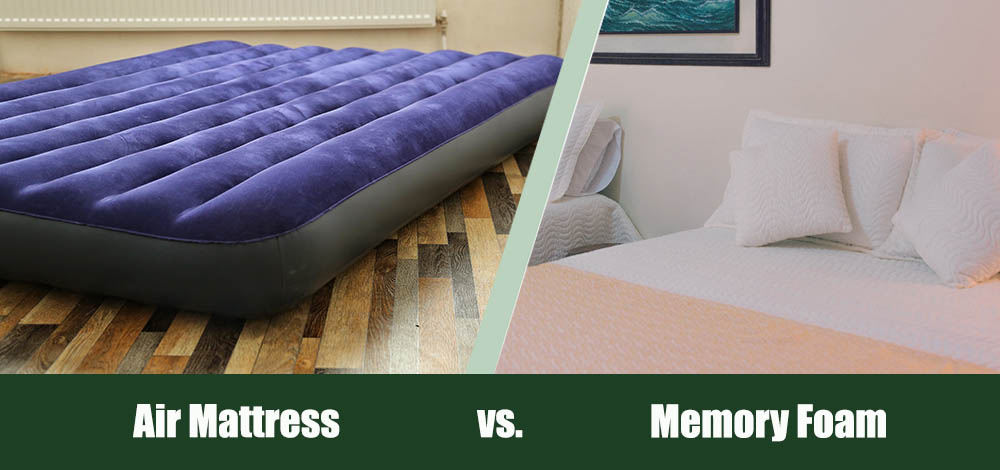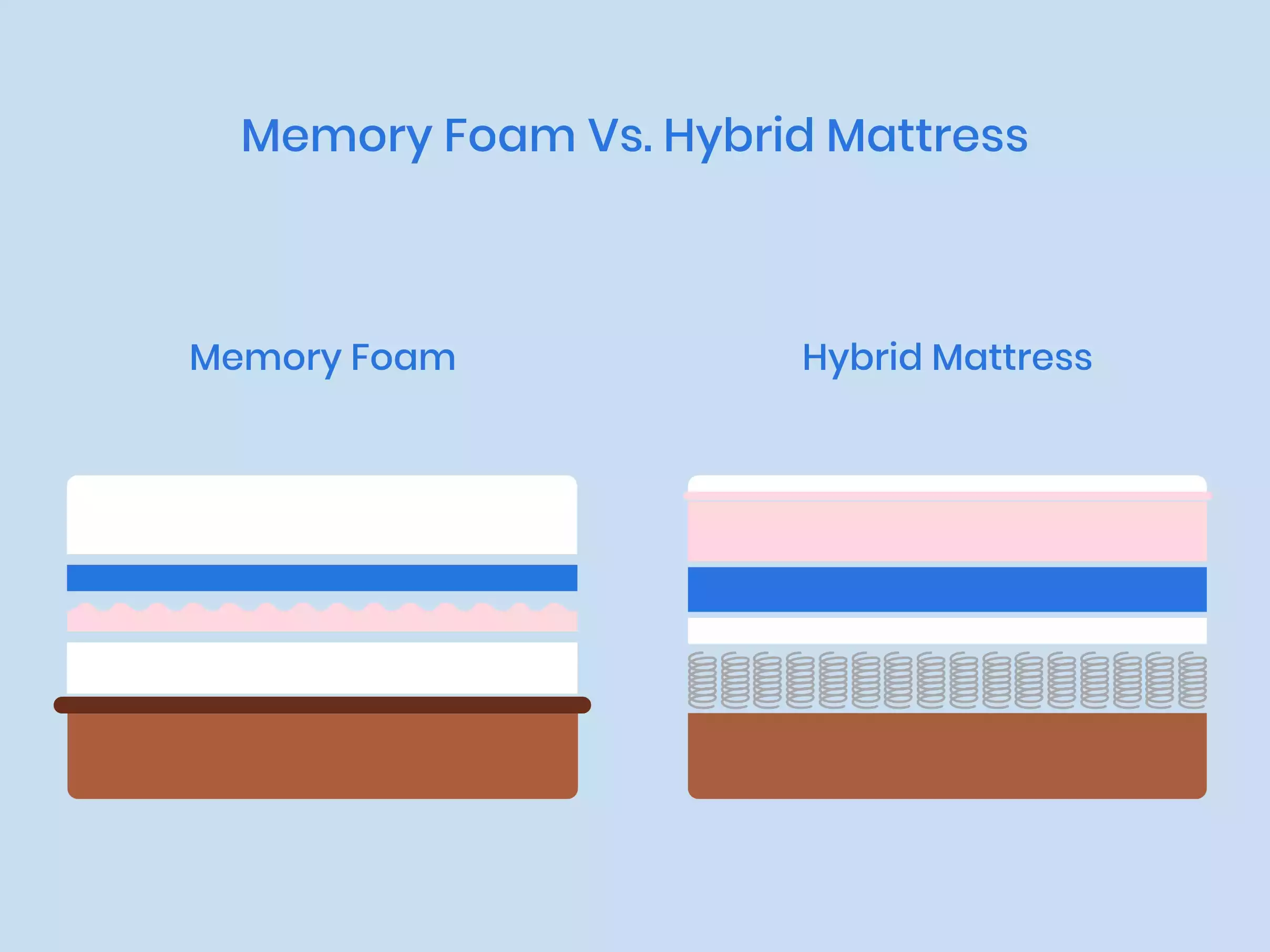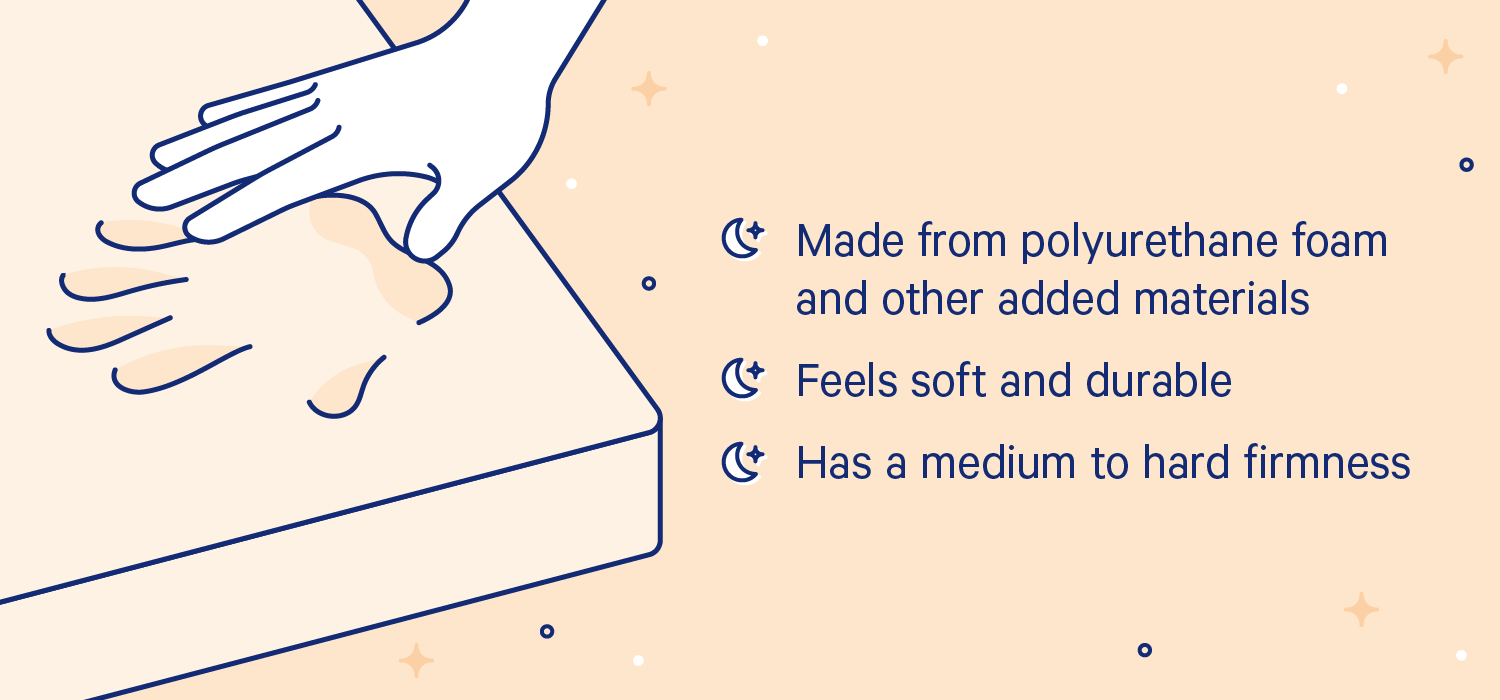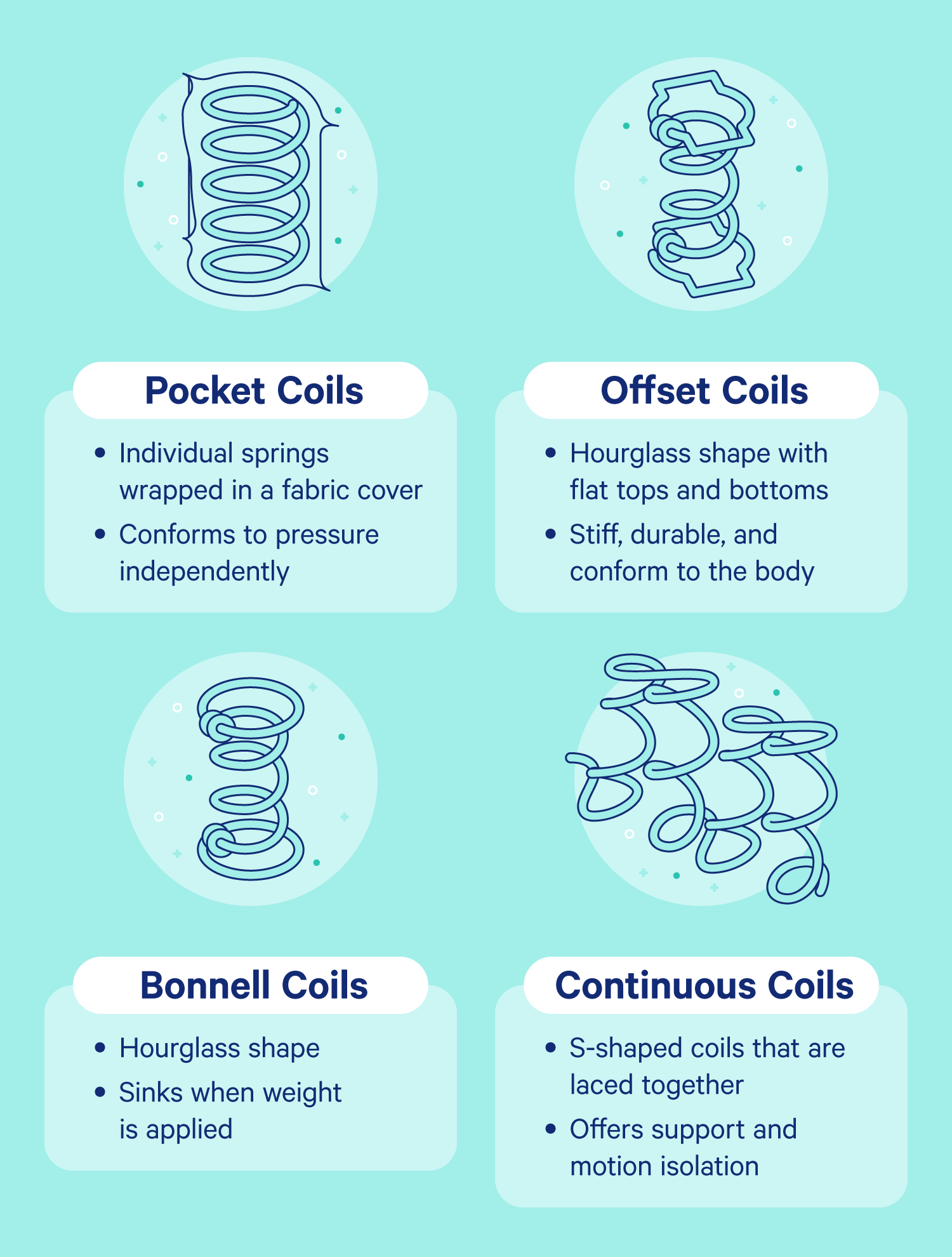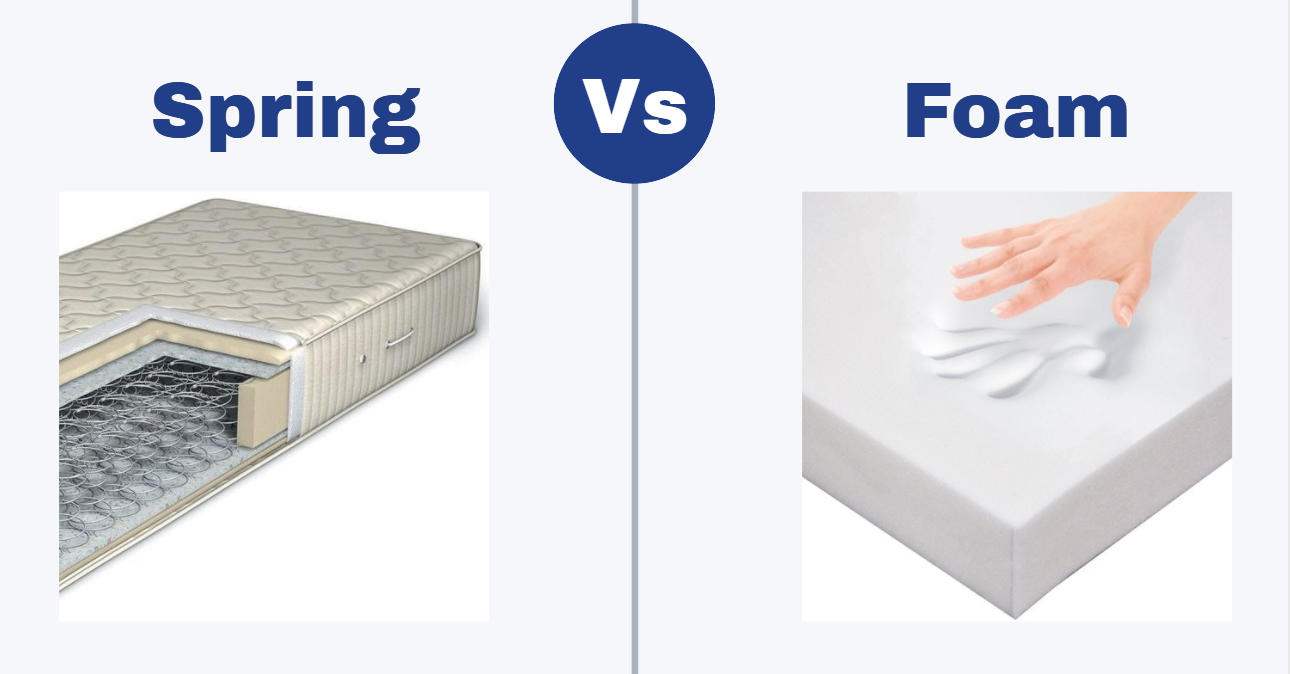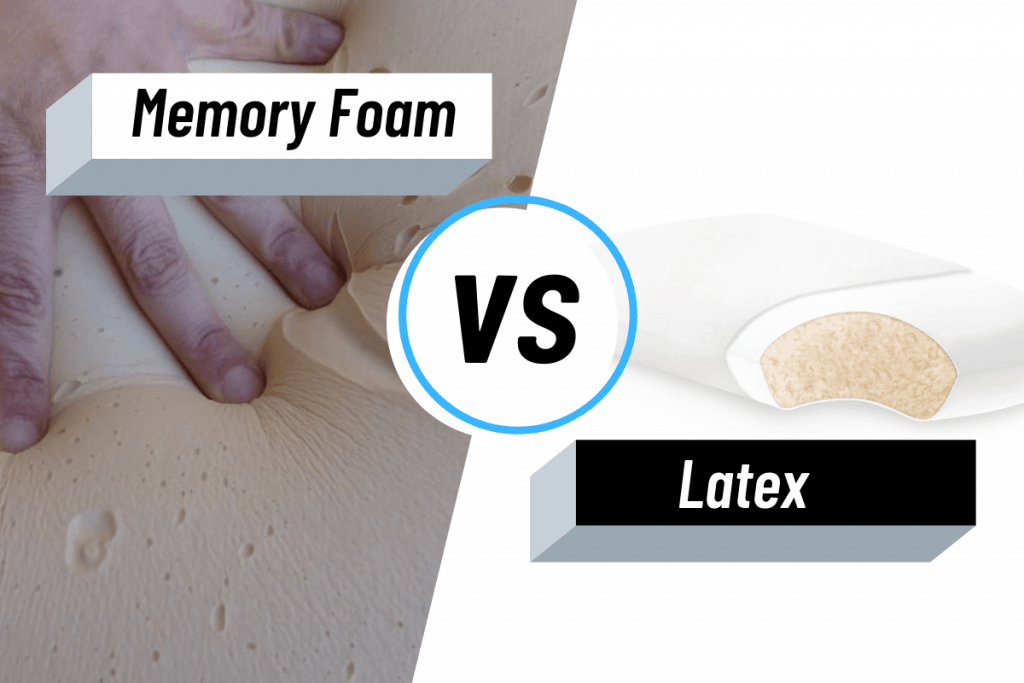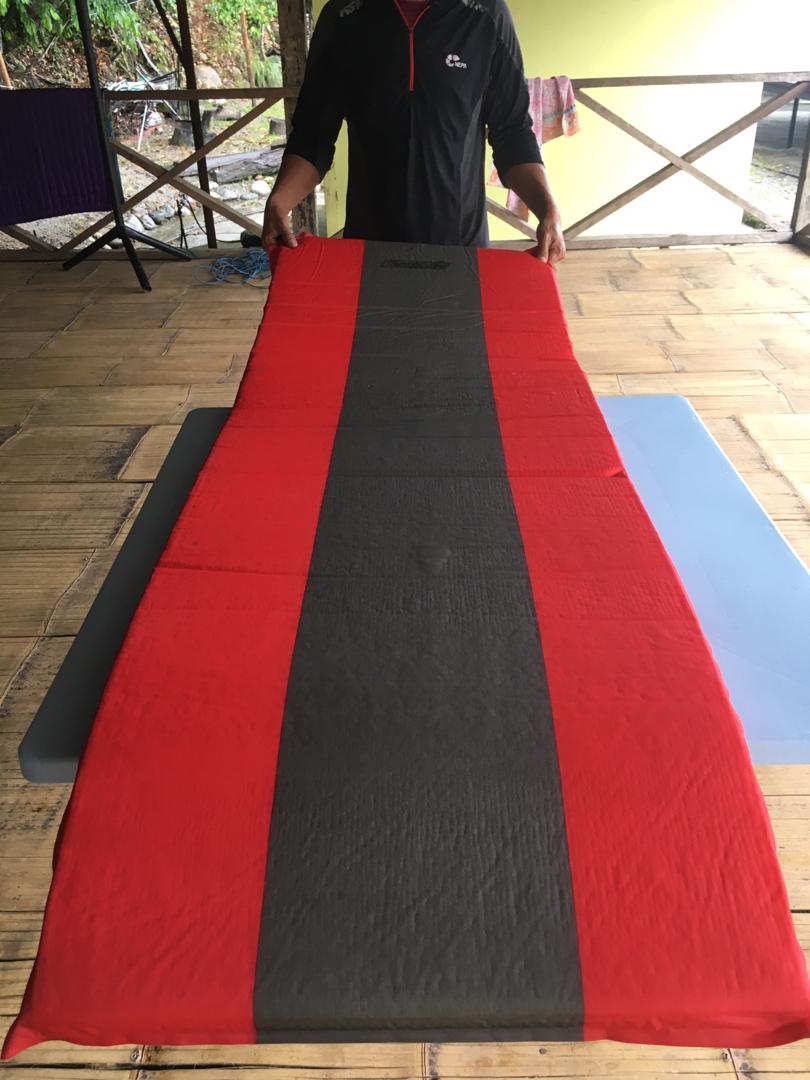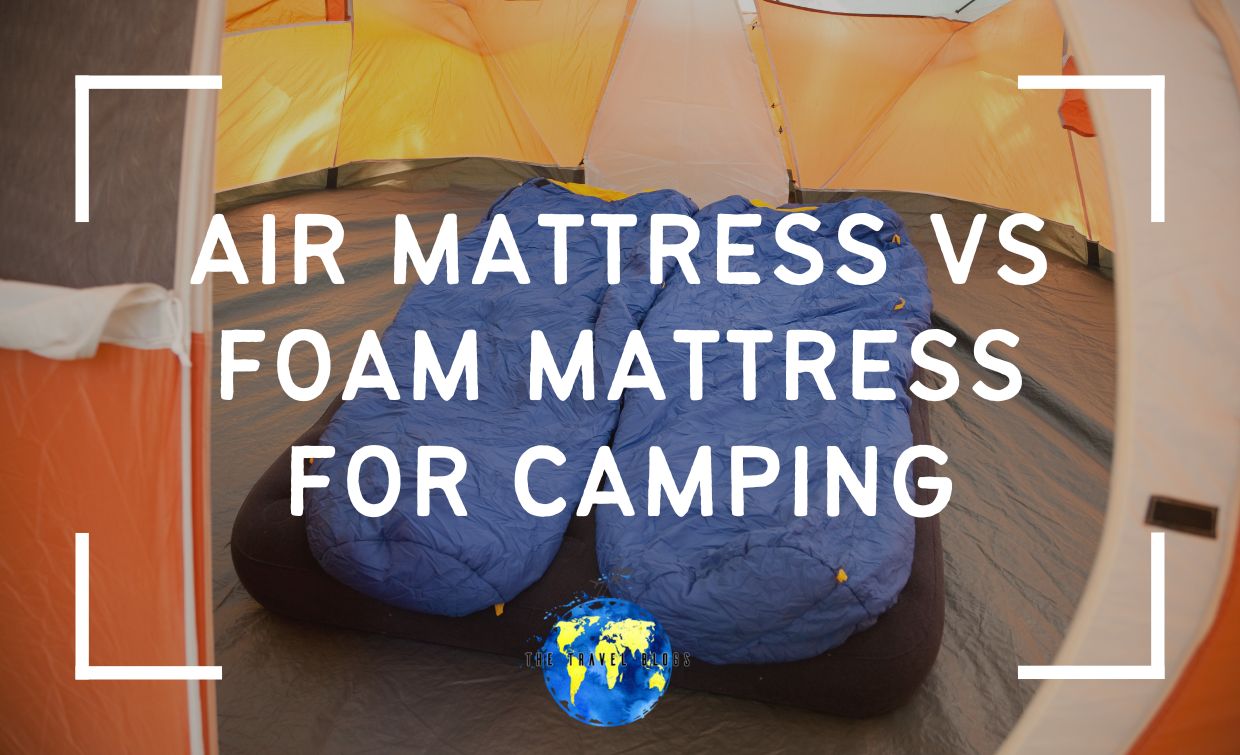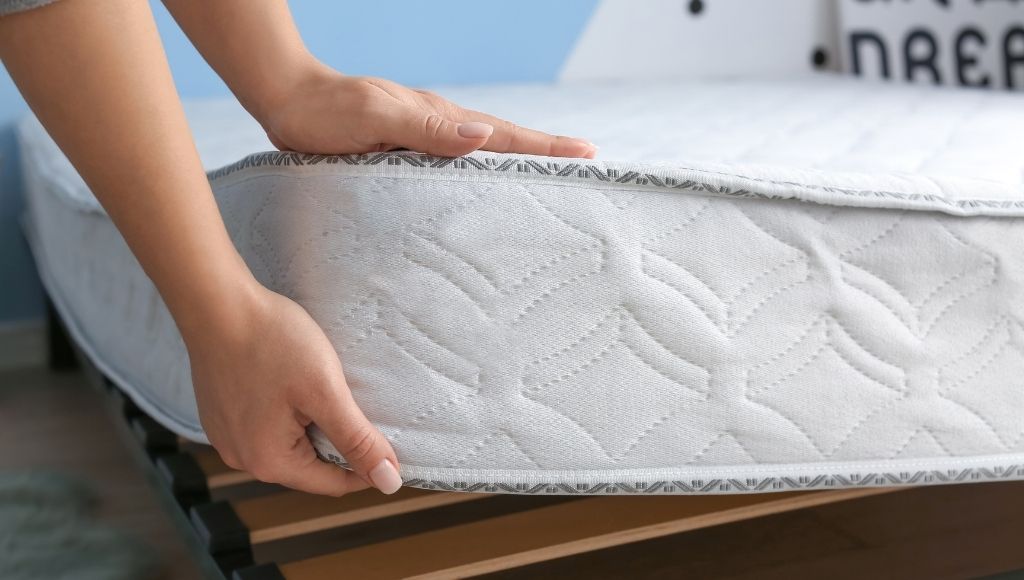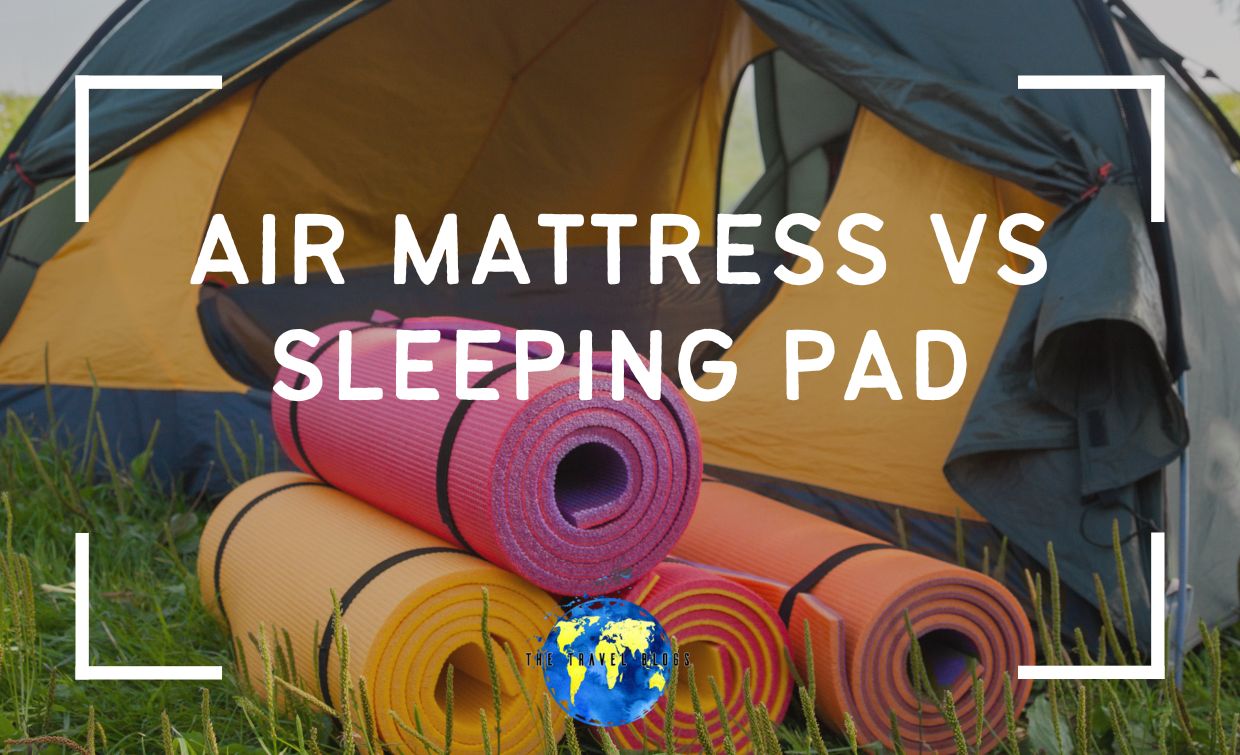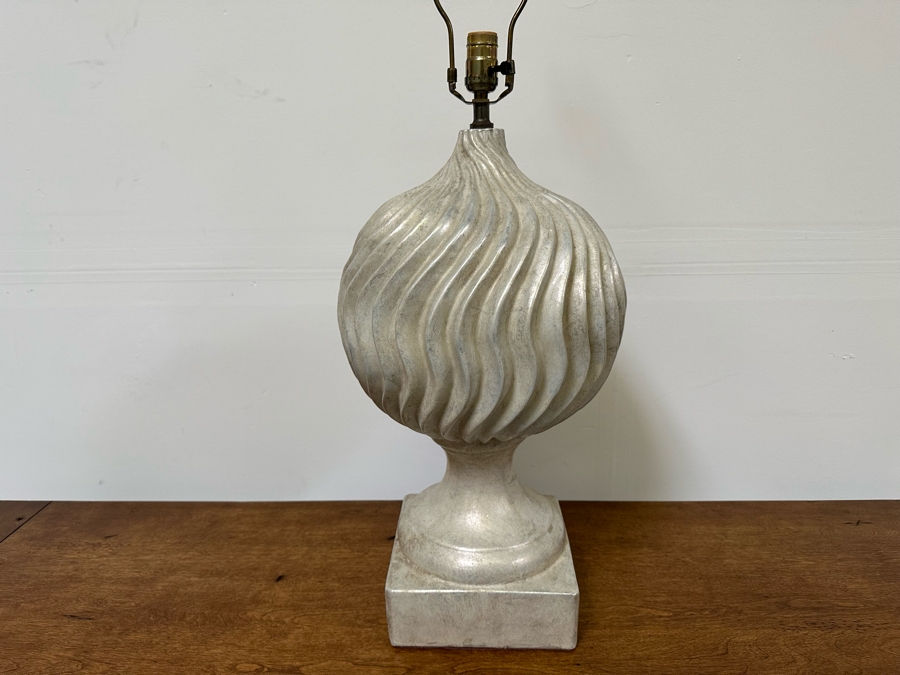When it comes to choosing a mattress, one of the most popular options on the market is memory foam. This type of mattress is known for its ability to conform to the body and provide support and comfort. But how does it compare to another popular choice, the air mattress? Let's take a closer look at the top 10 main differences between memory foam and air mattresses.Memory Foam Mattress: A Comfortable Choice
One of the biggest benefits of an air mattress is its portability. These mattresses are lightweight and easy to transport, making them a popular choice for camping trips or for guests staying over. They can also be easily deflated and stored when not in use, making them a space-saving option for those with limited storage space.Air Mattresses: Lightweight and Portable
When it comes to support and comfort, both memory foam and air mattresses have their own unique benefits. Memory foam mattresses are known for their ability to contour to the body, providing personalized support and pressure relief. Air mattresses, on the other hand, can be adjusted to different levels of firmness, allowing for customizable comfort.Foam vs Air: Support and Comfort
When comparing the durability and longevity of these two types of mattresses, memory foam has the upper hand. Memory foam mattresses are known for their longevity, with some lasting up to 10 years. Air mattresses, on the other hand, may have a shorter lifespan due to the possibility of punctures or leaks.Memory Foam vs Air Mattress: Durability and Longevity
One of the main concerns with memory foam mattresses is their tendency to retain heat. This can be uncomfortable for those who tend to sleep hot. Air mattresses, on the other hand, do not have this issue and can provide a cooler sleeping surface. However, some memory foam mattresses are now made with cooling gel-infused foam, making them a more comfortable option for hot sleepers.Air vs Foam Mattress: Temperature Control
When it comes to price, air mattresses are typically more affordable than memory foam mattresses. This is due to the materials used and the manufacturing process. However, it's important to keep in mind that memory foam mattresses tend to have a longer lifespan, making them a better long-term investment.Air vs Memory Foam: Price Point
Memory foam mattresses are known for their ability to absorb motion, making them a great choice for couples or anyone who tends to toss and turn in their sleep. Air mattresses, on the other hand, may transfer more motion and can be less stable, which can be disruptive for some sleepers.Memory Foam vs Air: Motion Isolation
For those who suffer from allergies, memory foam mattresses may be a better choice. They are less likely to harbor dust mites and other allergens compared to air mattresses, which can have a tendency to collect dust and debris in the areas where the air is pumped in and out.Memory Foam Mattress vs Air Mattress: Allergies
One potential downside of an air mattress is the noise it can make when the air is being pumped in or out. This can be disruptive to sleep, especially for light sleepers. Memory foam mattresses, on the other hand, are virtually silent, making them a better choice for those who are easily disturbed by noise.Air Mattress vs Foam Mattress: Noise Level
Both memory foam and air mattresses require some maintenance and care to ensure their longevity. Memory foam mattresses may need to be rotated occasionally to prevent sagging, while air mattresses may need to be cleaned and checked for leaks regularly. However, overall, memory foam mattresses require less maintenance compared to air mattresses.Foam Mattress vs Air: Maintenance and Care
The Battle of Comfort: Memory Foam Mattress vs Air Mattress

Introduction
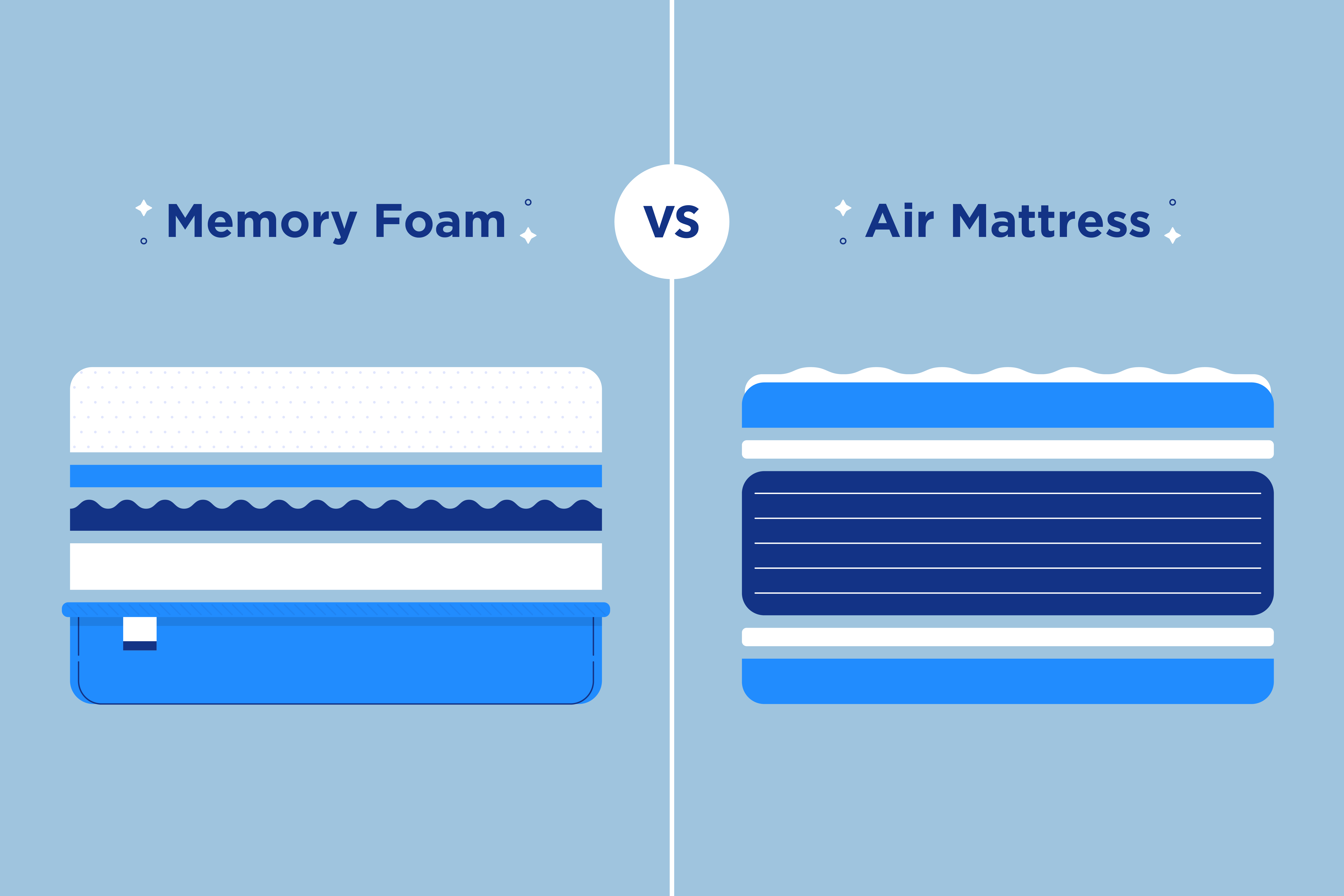 When it comes to creating the perfect sleeping space, one of the most important decisions is choosing the right mattress. With so many options on the market, it can be overwhelming to decide which one is best for you. Two popular choices are memory foam mattresses and air mattresses. Both offer unique benefits and features, but which one reigns supreme? In this article, we will compare the two to help you make an informed decision on which type of mattress is better for your needs.
When it comes to creating the perfect sleeping space, one of the most important decisions is choosing the right mattress. With so many options on the market, it can be overwhelming to decide which one is best for you. Two popular choices are memory foam mattresses and air mattresses. Both offer unique benefits and features, but which one reigns supreme? In this article, we will compare the two to help you make an informed decision on which type of mattress is better for your needs.
Memory Foam Mattress
 Memory foam mattresses
have gained popularity in recent years due to their ability to conform to the body's shape, providing optimal support and pressure relief. Made from viscoelastic foam, these mattresses are designed to mold to the body in response to heat and pressure, evenly distributing body weight and reducing pressure points. This makes them an excellent choice for those suffering from back pain or joint issues. The foam also absorbs movement, making it an ideal choice for couples who don't want to be disturbed by their partner's movements throughout the night.
Memory foam mattresses
have gained popularity in recent years due to their ability to conform to the body's shape, providing optimal support and pressure relief. Made from viscoelastic foam, these mattresses are designed to mold to the body in response to heat and pressure, evenly distributing body weight and reducing pressure points. This makes them an excellent choice for those suffering from back pain or joint issues. The foam also absorbs movement, making it an ideal choice for couples who don't want to be disturbed by their partner's movements throughout the night.
Air Mattress
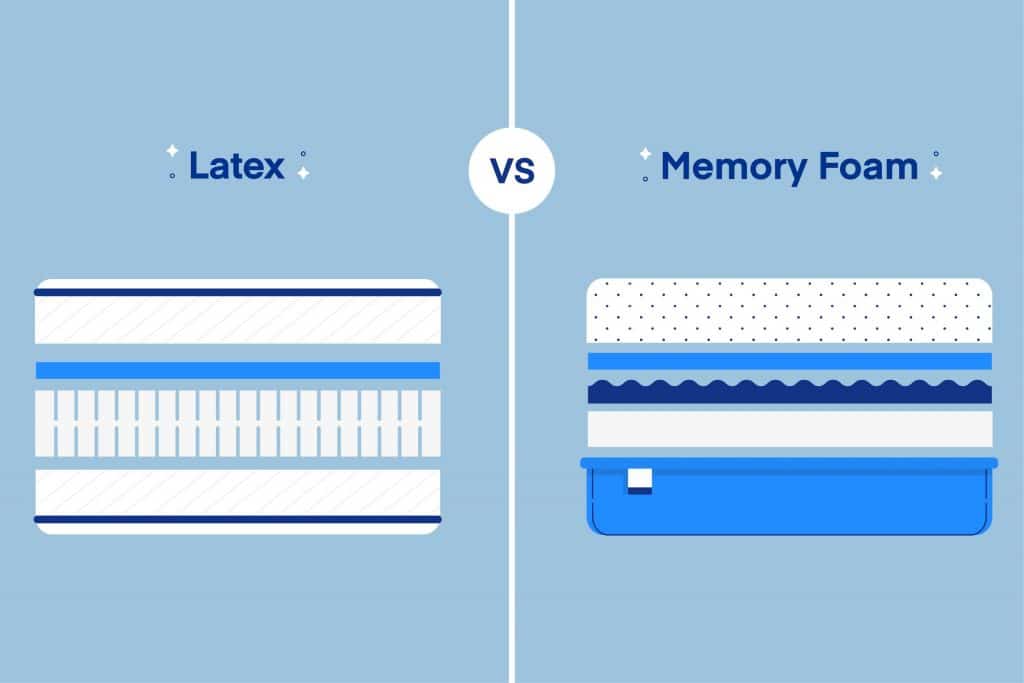 On the other hand,
air mattresses
have been around for a while and are commonly used for temporary sleeping arrangements, such as camping or accommodating guests. They consist of an inflatable air chamber, usually made from PVC material, and can be easily inflated and deflated using a pump or by mouth. One of the main advantages of air mattresses is their ability to adjust the firmness level to suit individual preferences. This makes them a suitable option for those who prefer a firmer or softer mattress.
On the other hand,
air mattresses
have been around for a while and are commonly used for temporary sleeping arrangements, such as camping or accommodating guests. They consist of an inflatable air chamber, usually made from PVC material, and can be easily inflated and deflated using a pump or by mouth. One of the main advantages of air mattresses is their ability to adjust the firmness level to suit individual preferences. This makes them a suitable option for those who prefer a firmer or softer mattress.
The Main Differences
 While both mattresses have their unique features, there are a few key differences to consider when making your decision. The main difference is the level of support each mattress provides. Memory foam mattresses offer a more personalized support system, as they conform to the body's shape, while air mattresses provide a customizable firmness level. Another significant difference is durability. Memory foam mattresses are known for their longevity, with an average lifespan of 8-10 years, while air mattresses may need to be replaced more frequently due to potential punctures or leaks.
While both mattresses have their unique features, there are a few key differences to consider when making your decision. The main difference is the level of support each mattress provides. Memory foam mattresses offer a more personalized support system, as they conform to the body's shape, while air mattresses provide a customizable firmness level. Another significant difference is durability. Memory foam mattresses are known for their longevity, with an average lifespan of 8-10 years, while air mattresses may need to be replaced more frequently due to potential punctures or leaks.
Which One is Right for You?
 Ultimately, the choice between a memory foam mattress and an air mattress comes down to personal preference and individual needs. If you suffer from chronic pain or want a mattress that will last for years to come, a memory foam mattress may be the better option. However, if you are looking for a temporary sleeping solution or prefer a customizable firmness level, an air mattress may be the way to go. Whichever you choose, make sure to do your research and test out different options to find the perfect mattress for your comfort and needs.
Ultimately, the choice between a memory foam mattress and an air mattress comes down to personal preference and individual needs. If you suffer from chronic pain or want a mattress that will last for years to come, a memory foam mattress may be the better option. However, if you are looking for a temporary sleeping solution or prefer a customizable firmness level, an air mattress may be the way to go. Whichever you choose, make sure to do your research and test out different options to find the perfect mattress for your comfort and needs.
Conclusion
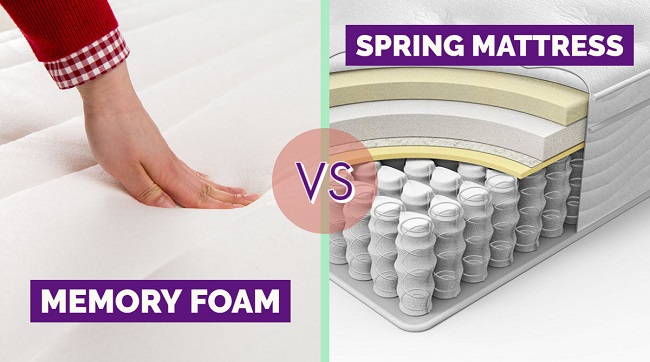 In conclusion, both memory foam mattresses and air mattresses have their unique advantages and can provide a comfortable and restful night's sleep. Consider your individual needs and preferences when making your decision and remember to invest in a high-quality mattress that will support you for years to come. Whichever mattress you choose, a good night's sleep is essential for overall health and well-being, so make sure to choose wisely.
In conclusion, both memory foam mattresses and air mattresses have their unique advantages and can provide a comfortable and restful night's sleep. Consider your individual needs and preferences when making your decision and remember to invest in a high-quality mattress that will support you for years to come. Whichever mattress you choose, a good night's sleep is essential for overall health and well-being, so make sure to choose wisely.

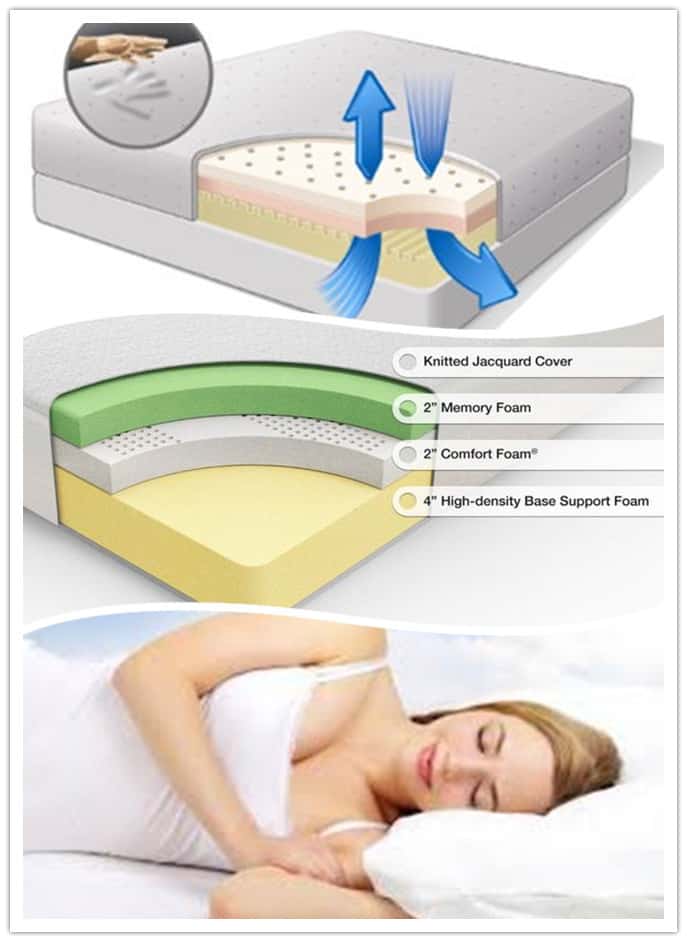




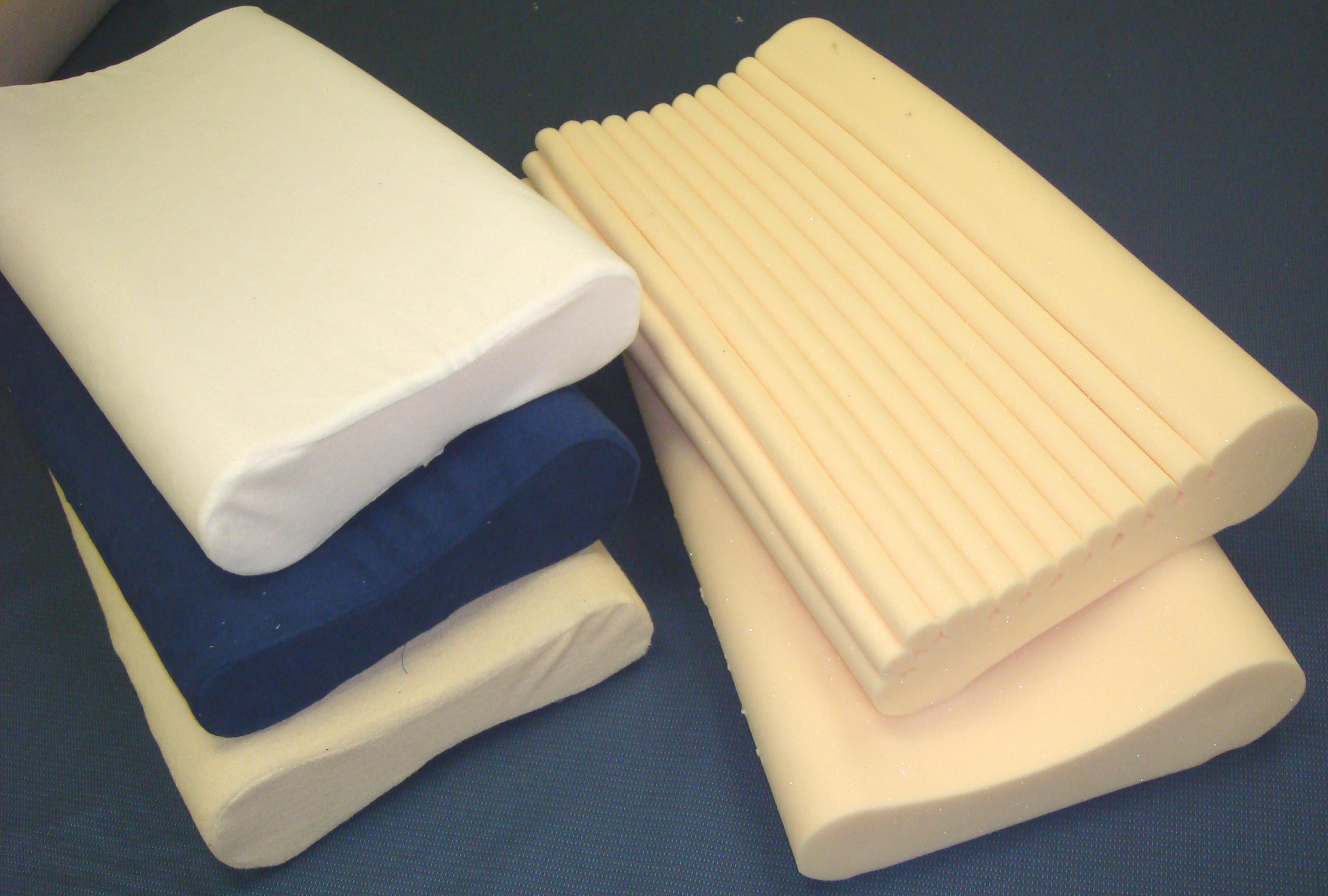
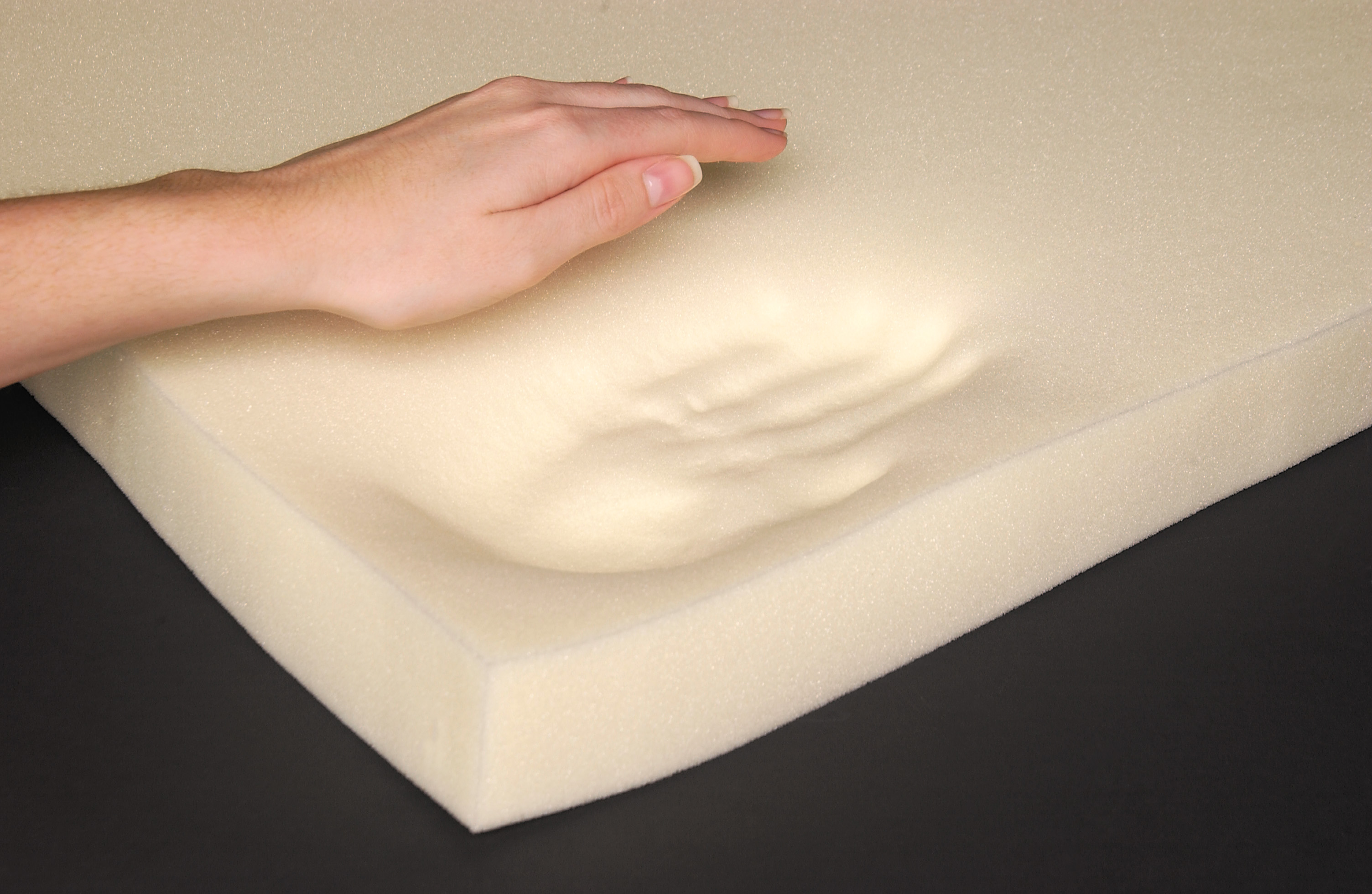


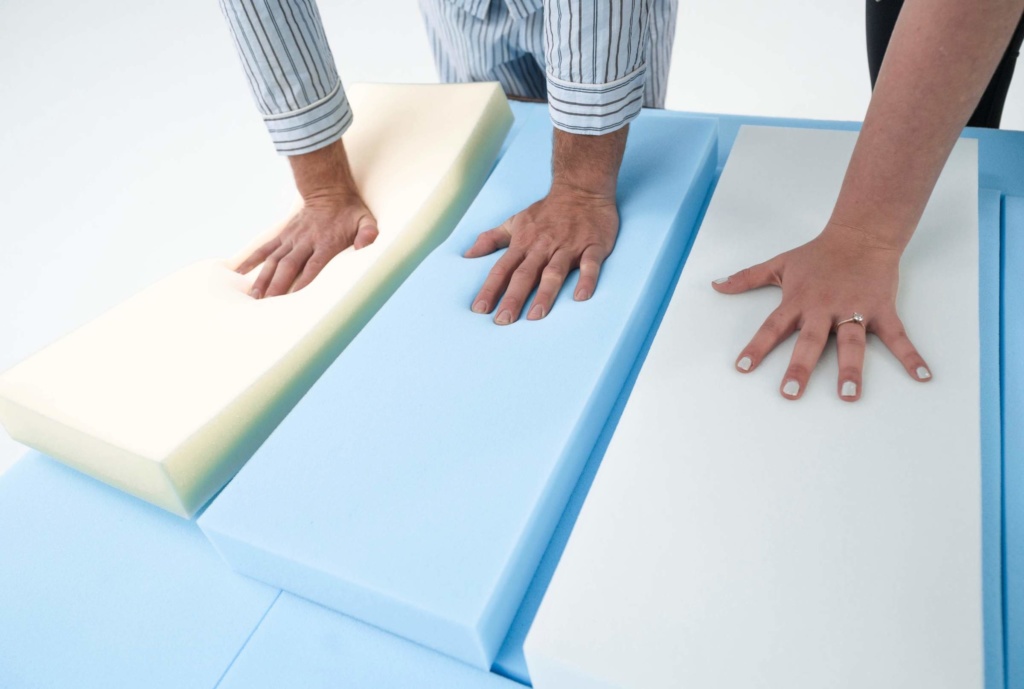



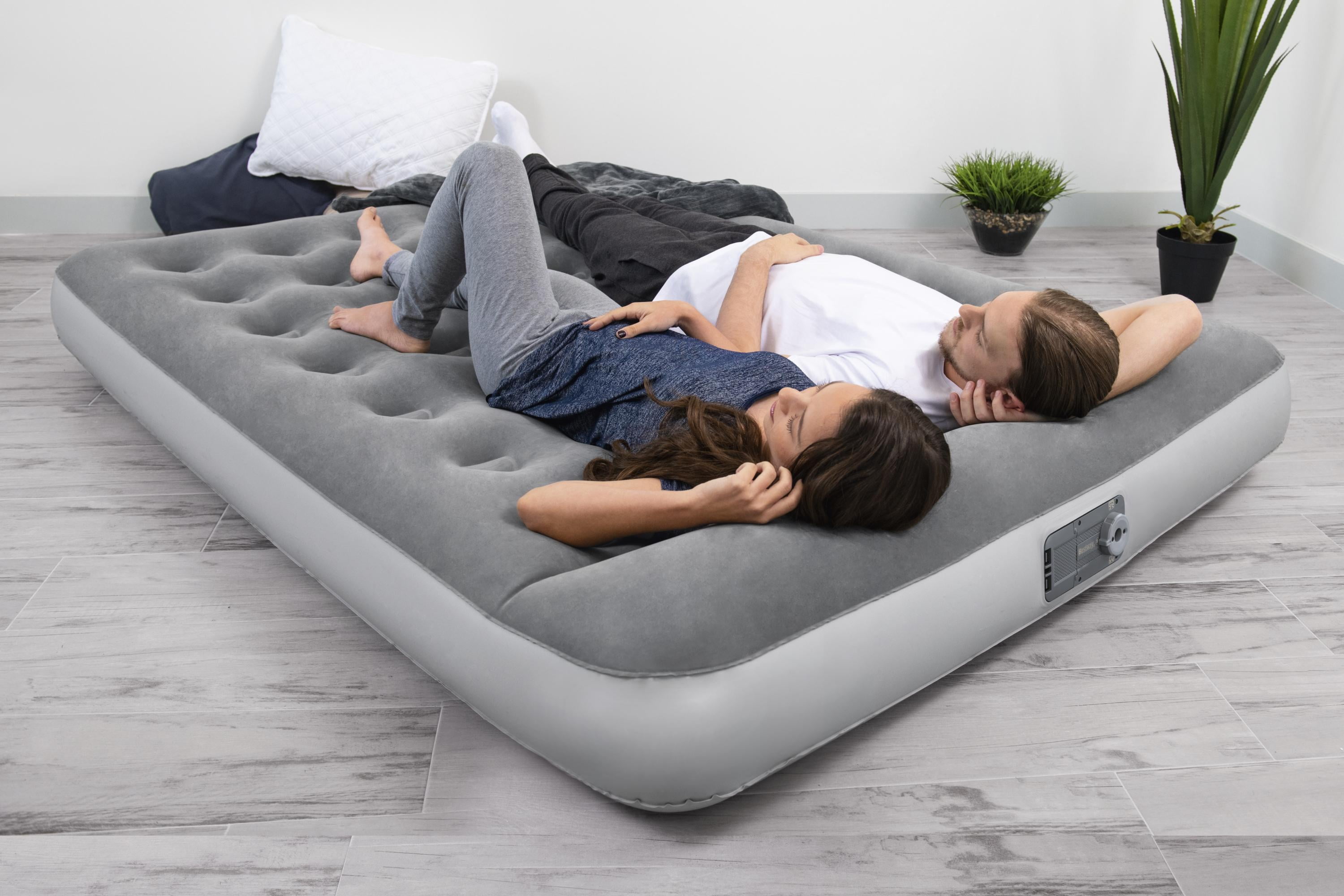
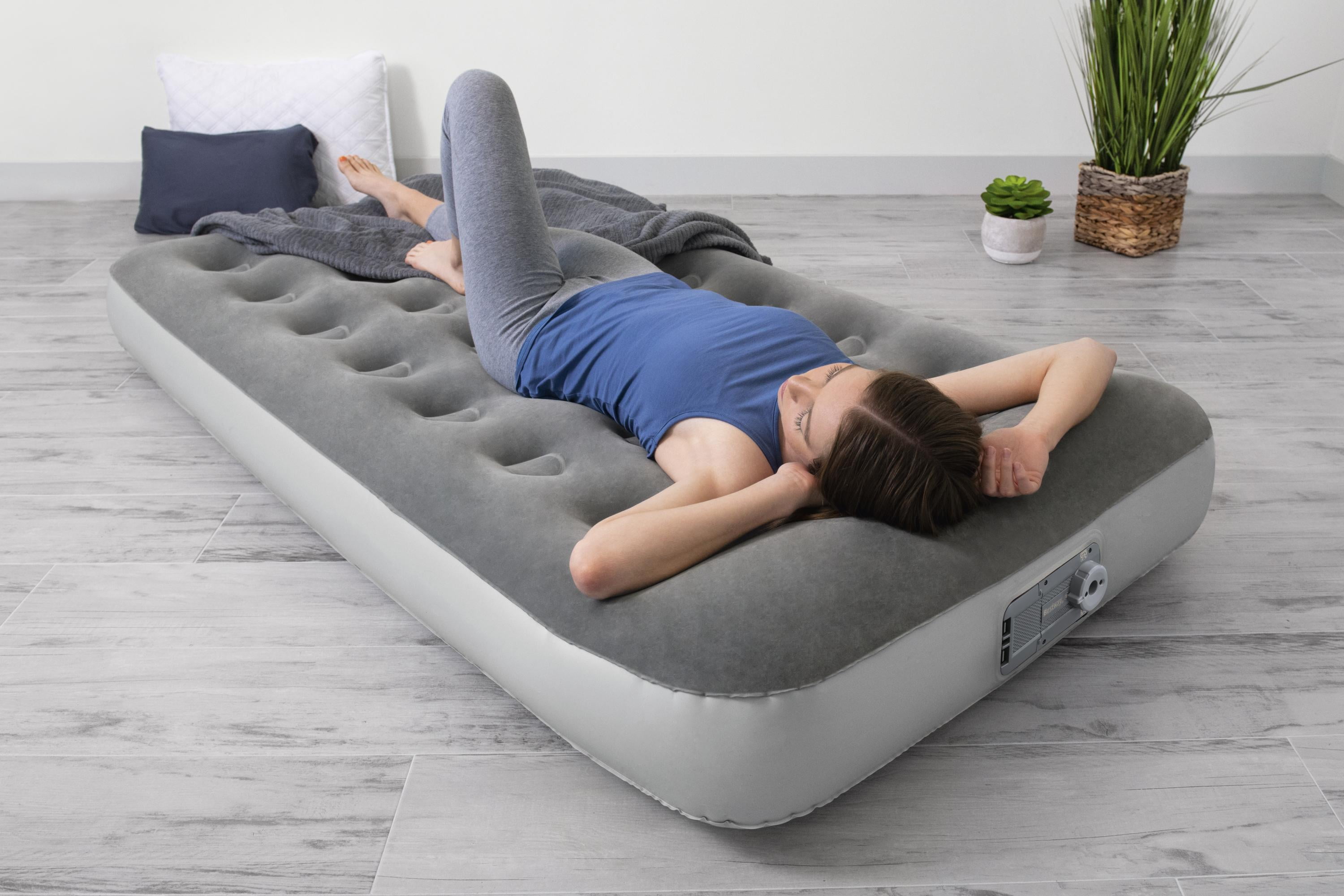
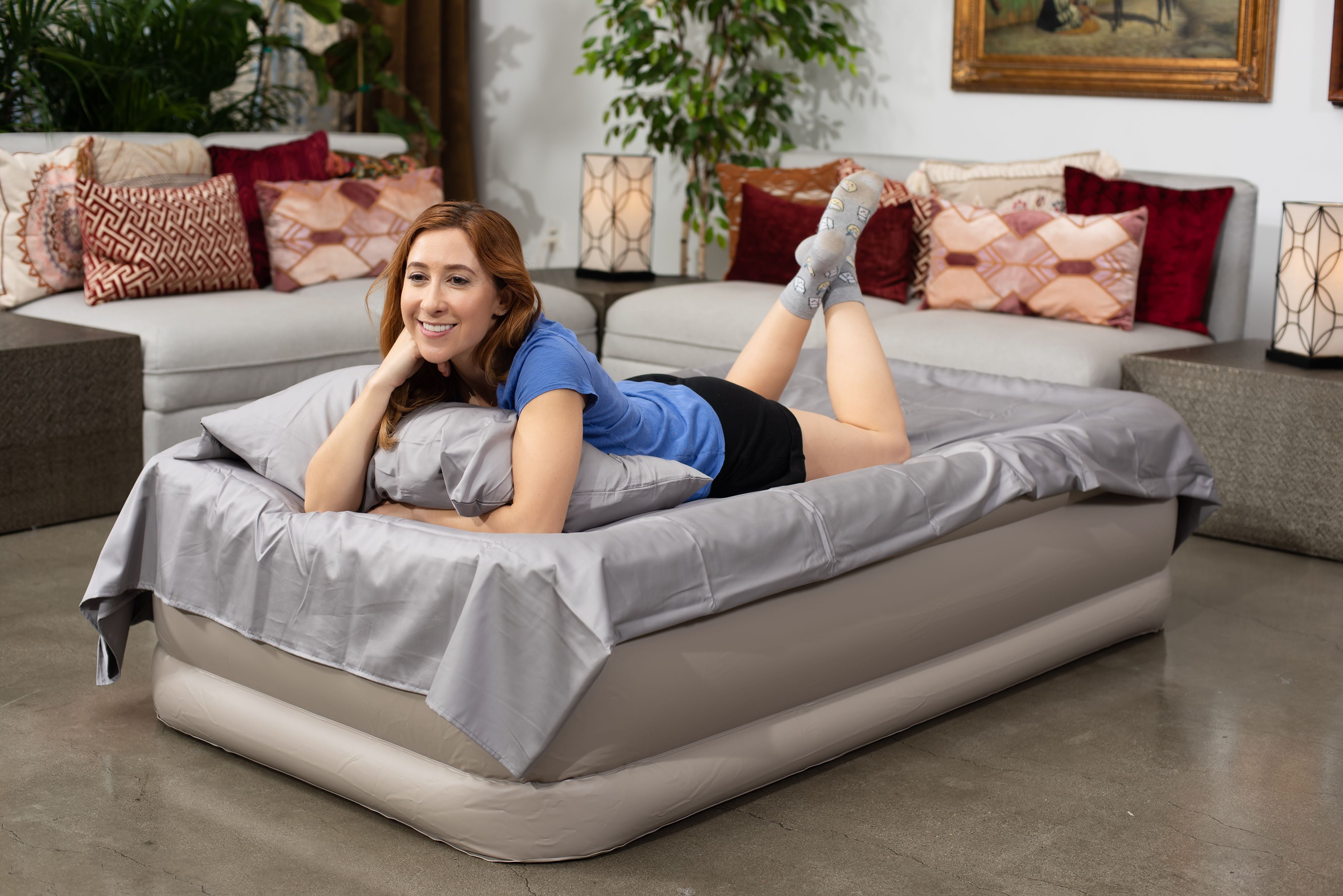
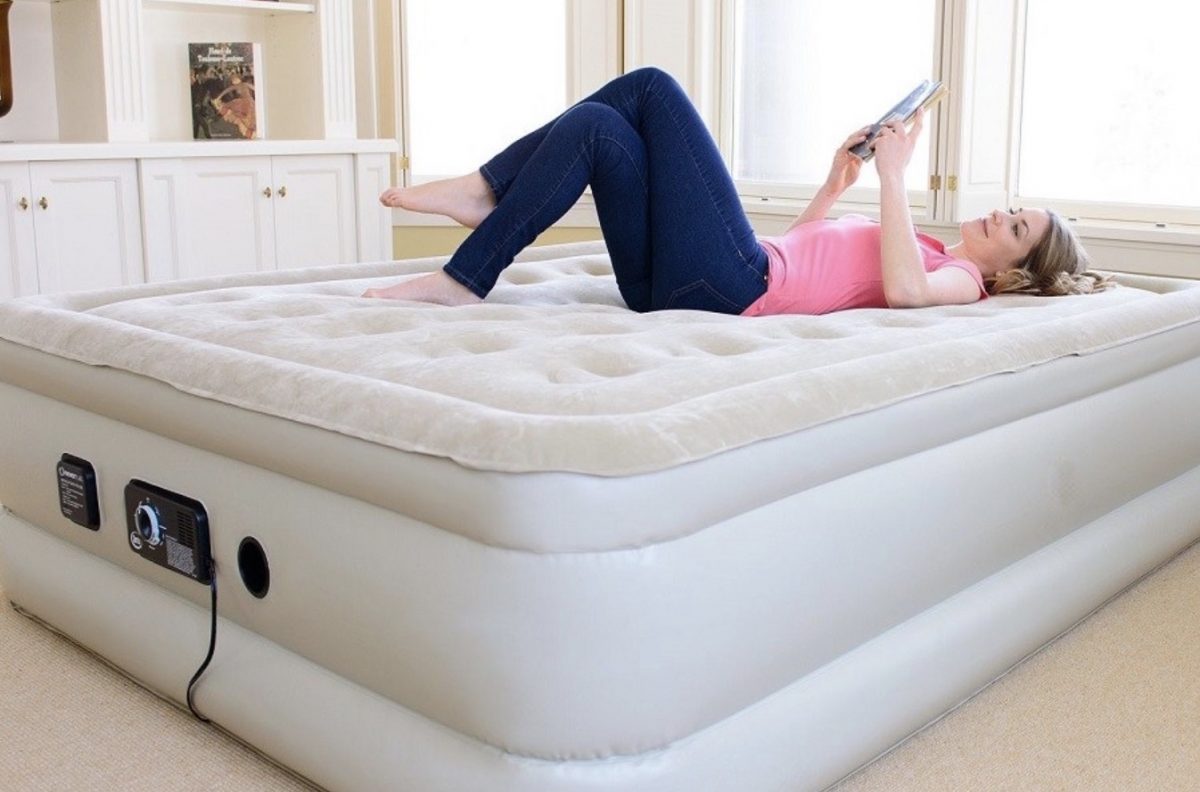
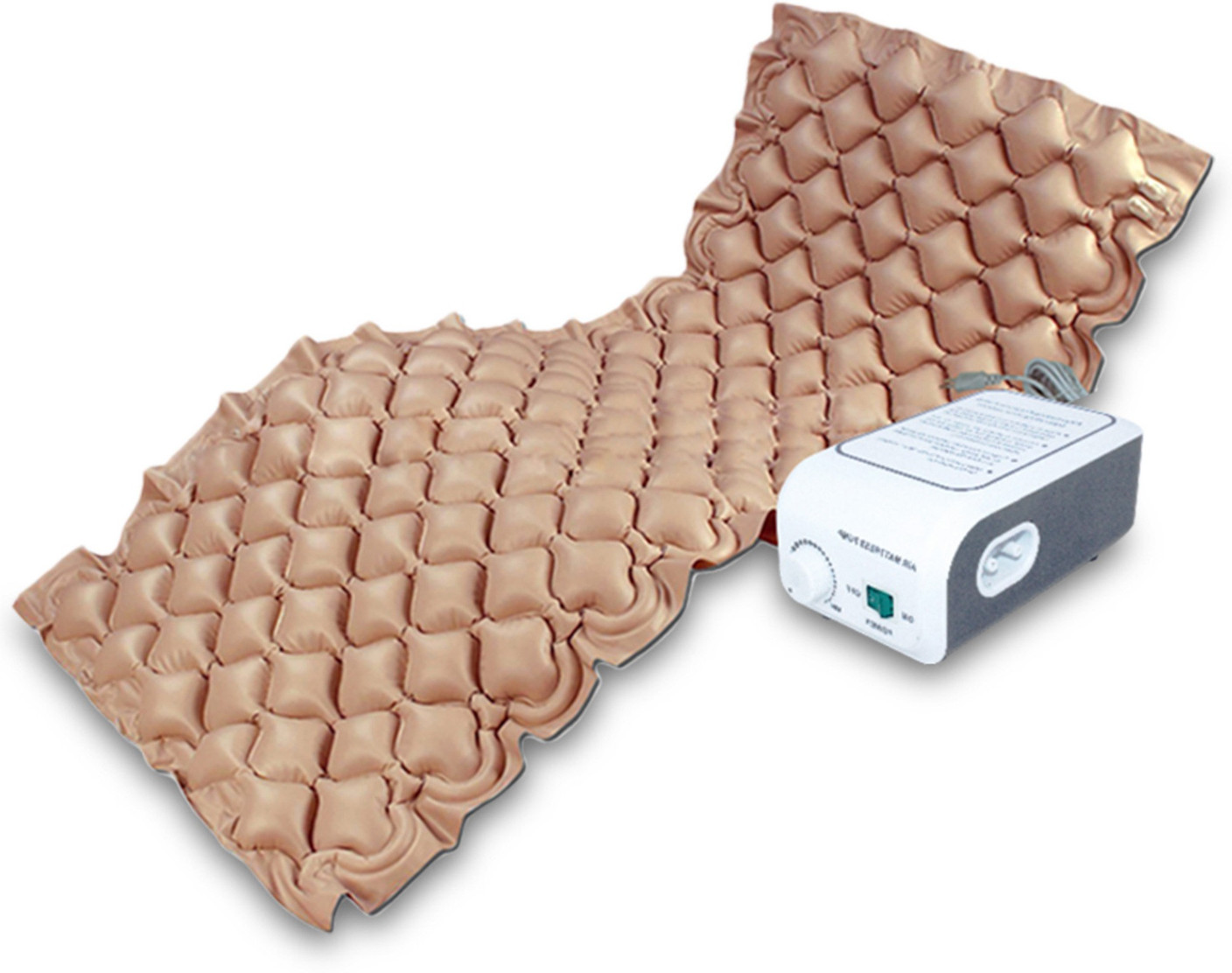
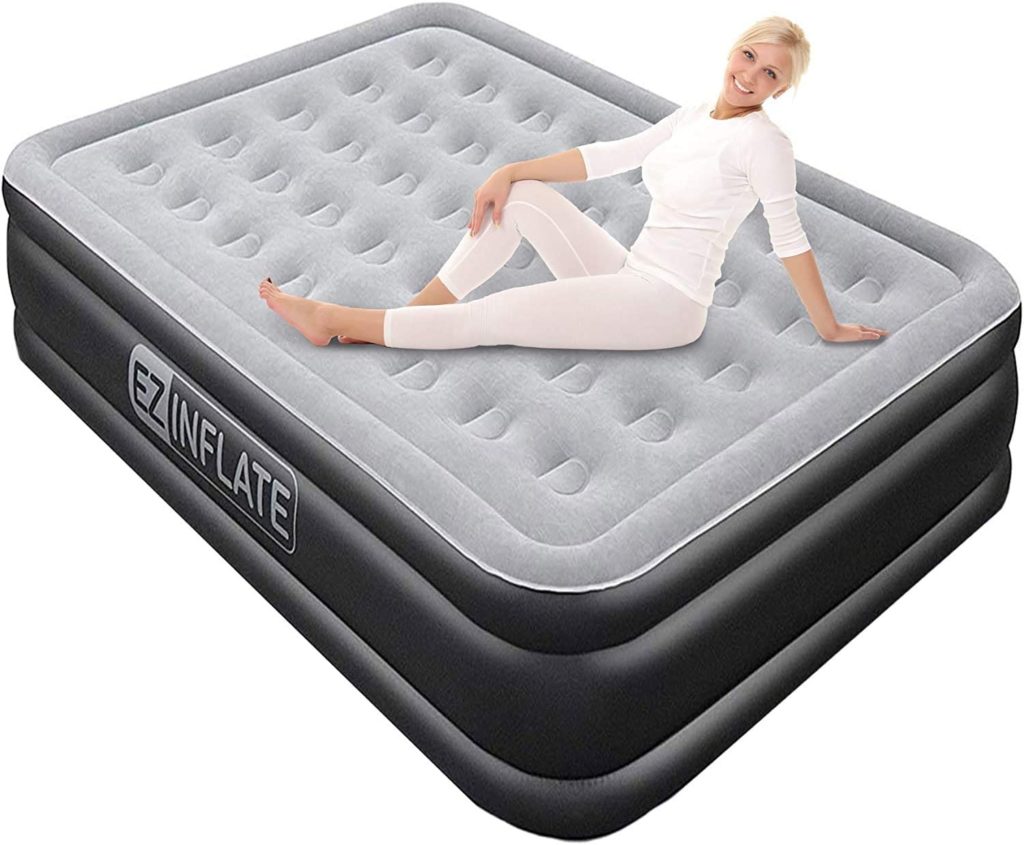
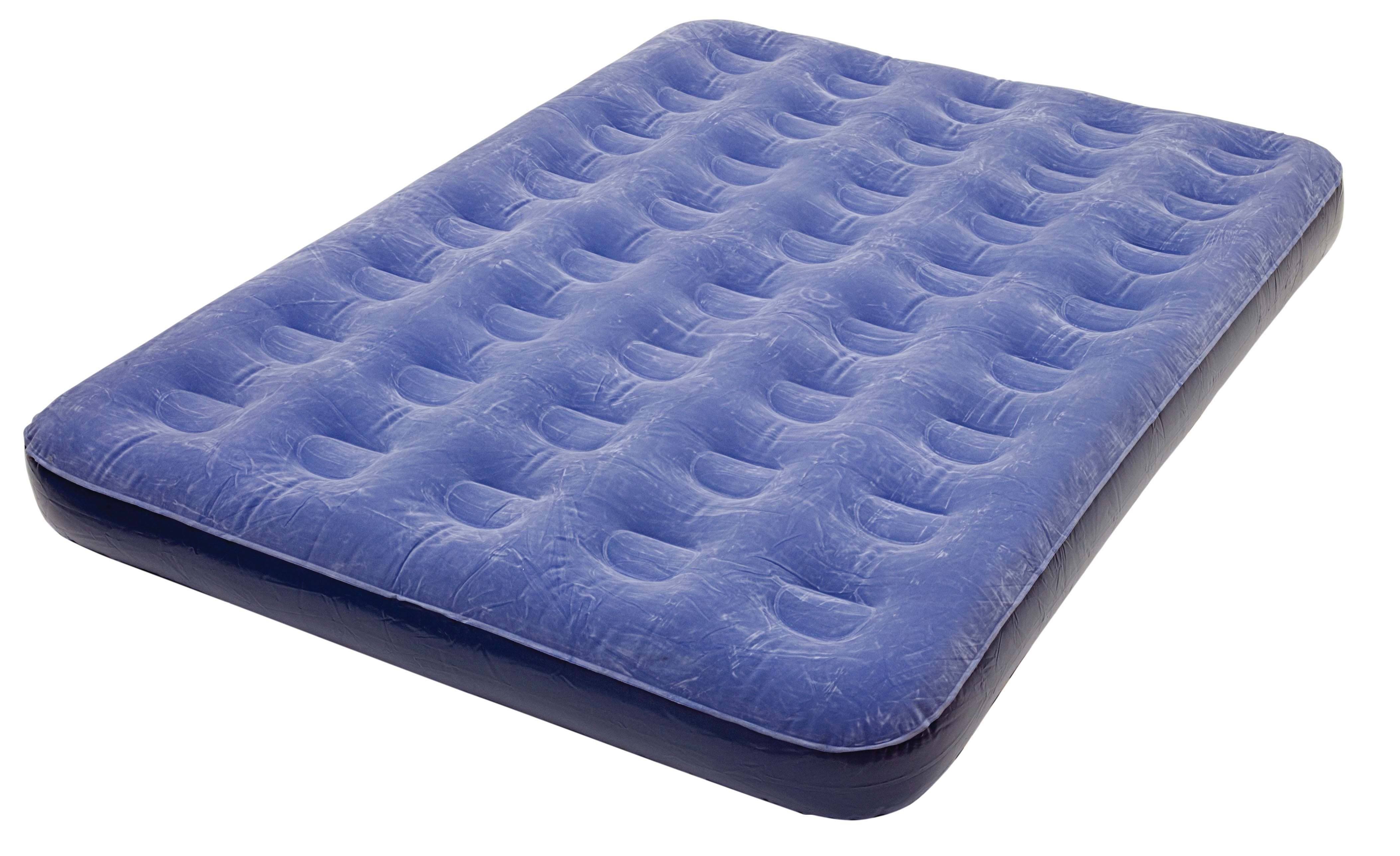
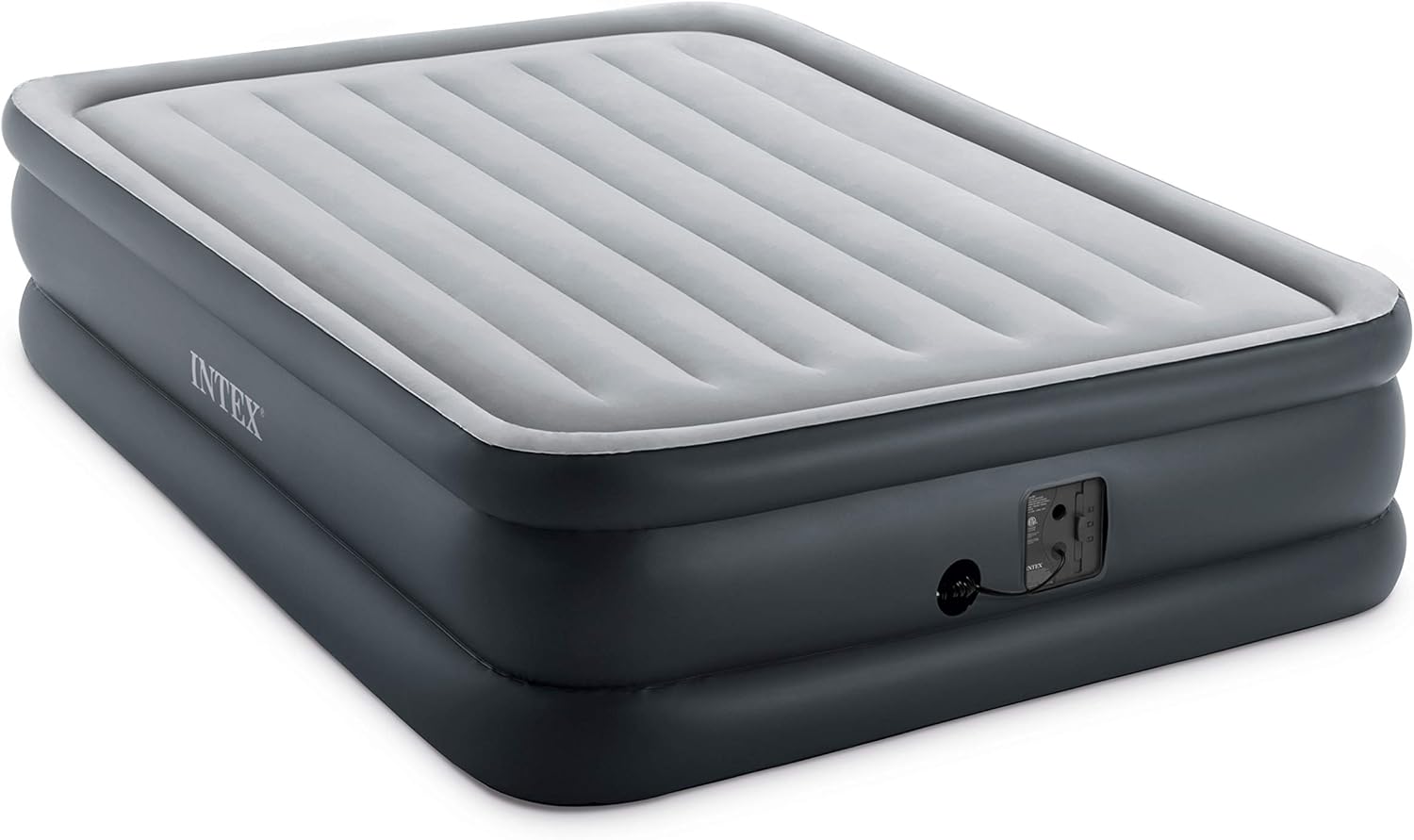





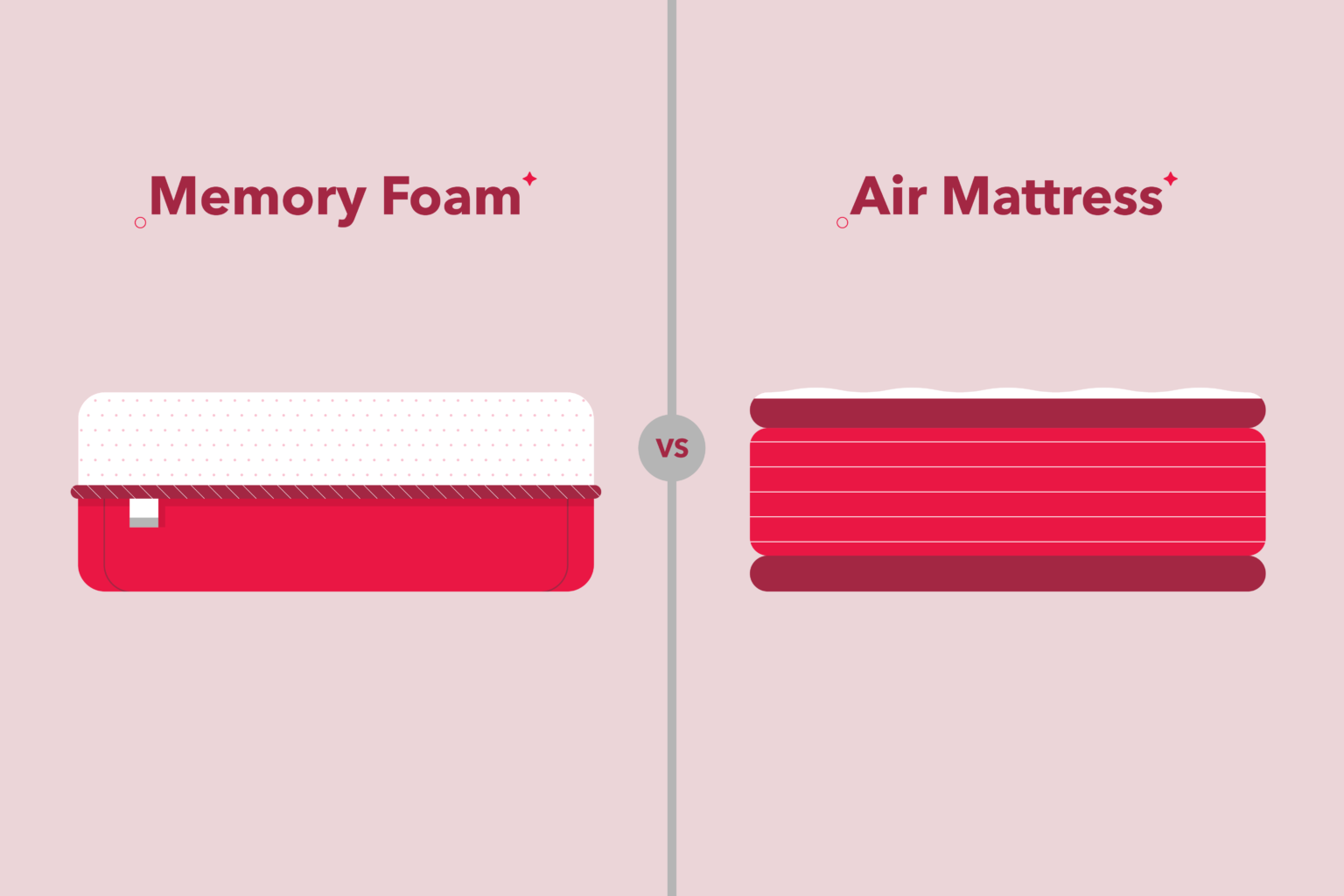








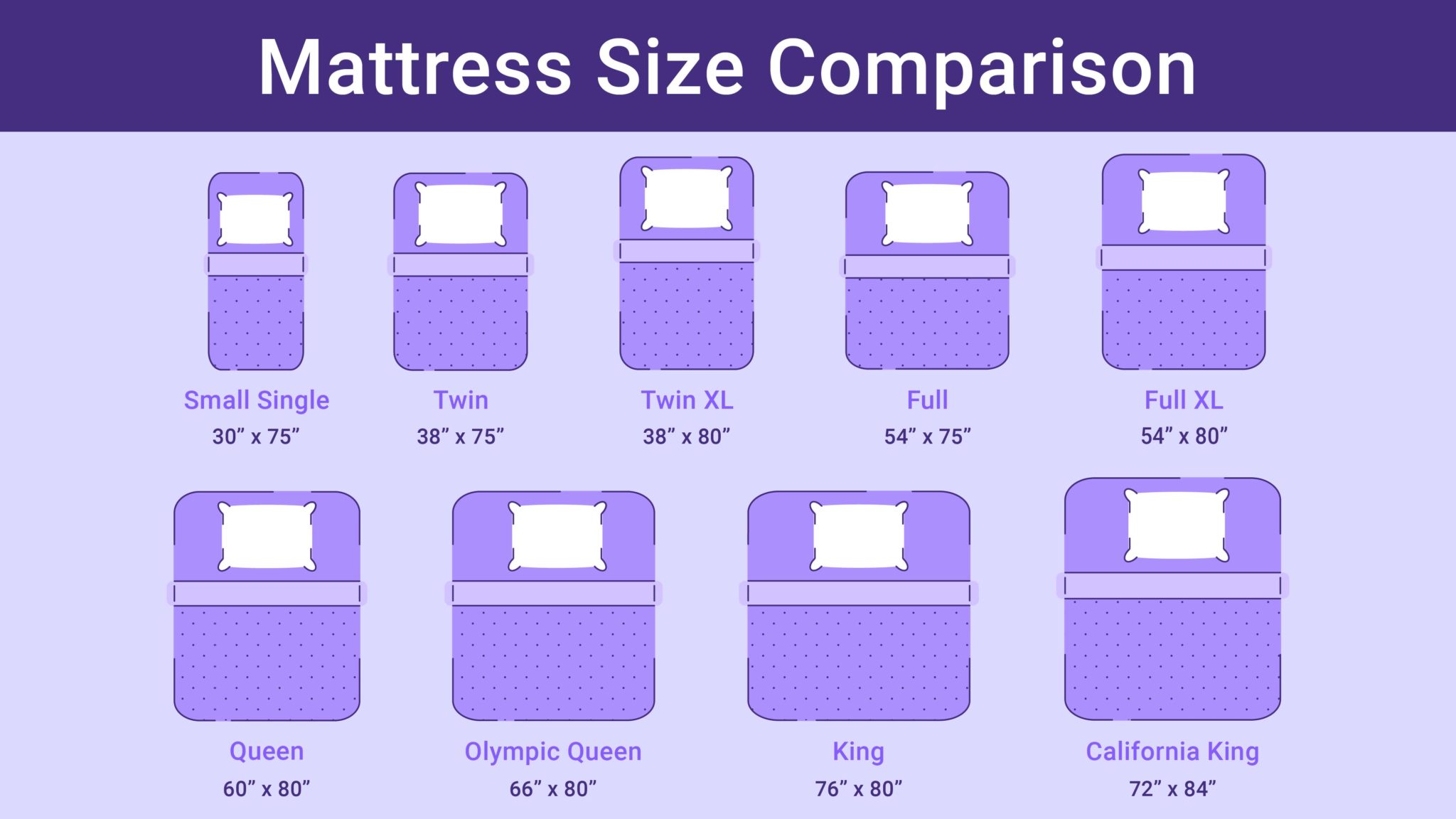

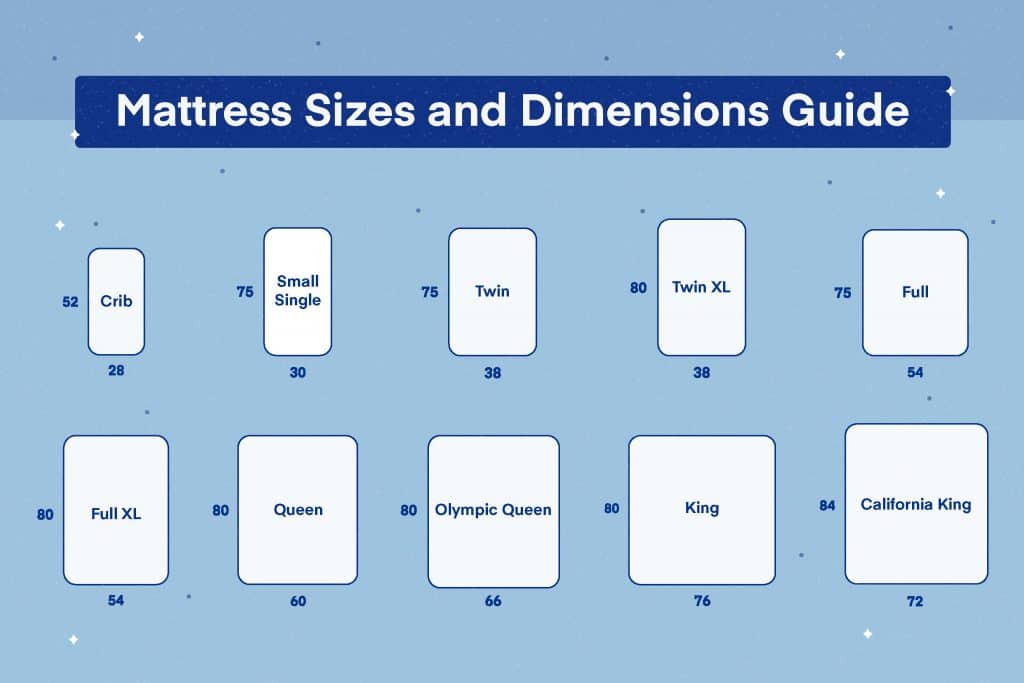
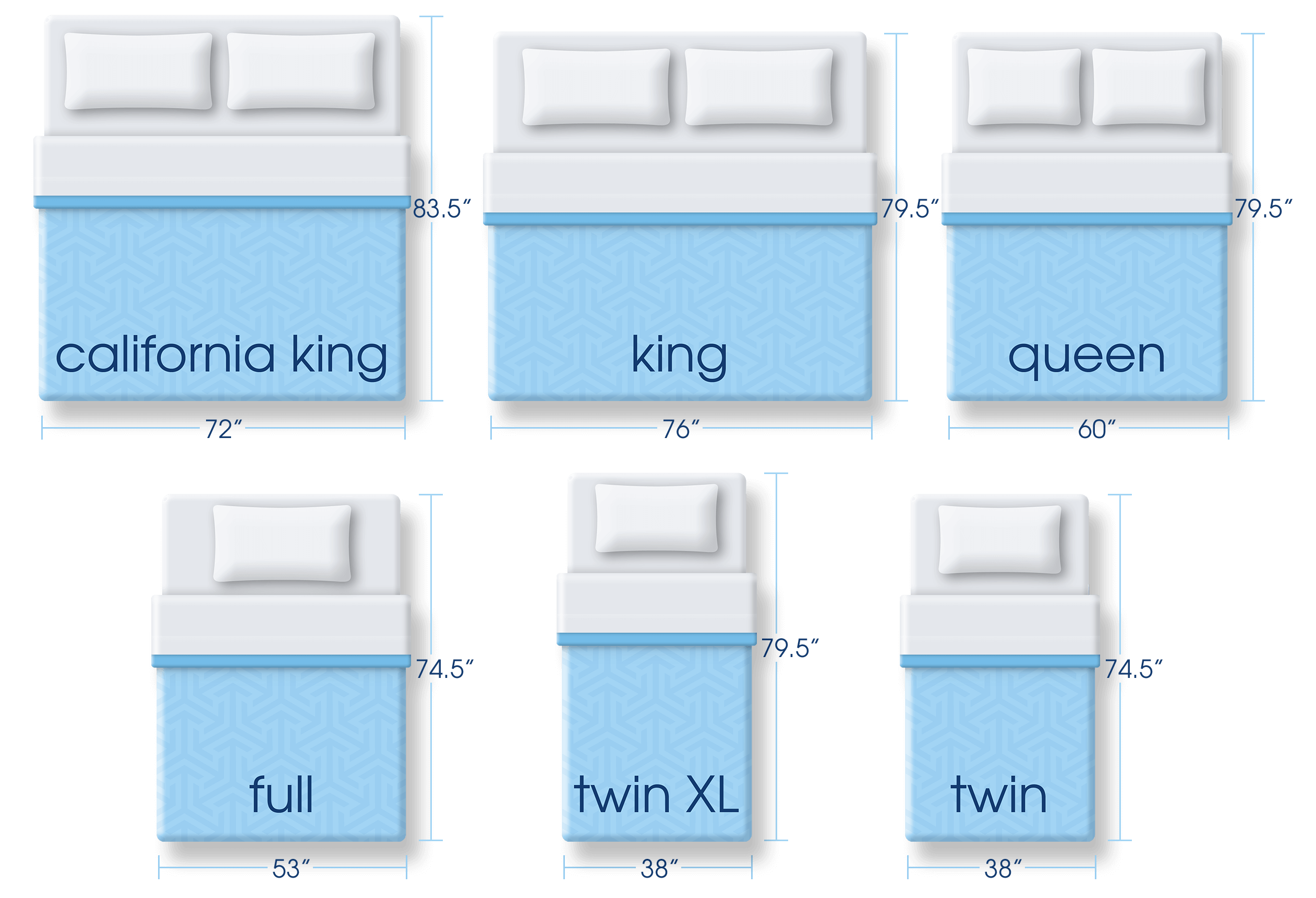

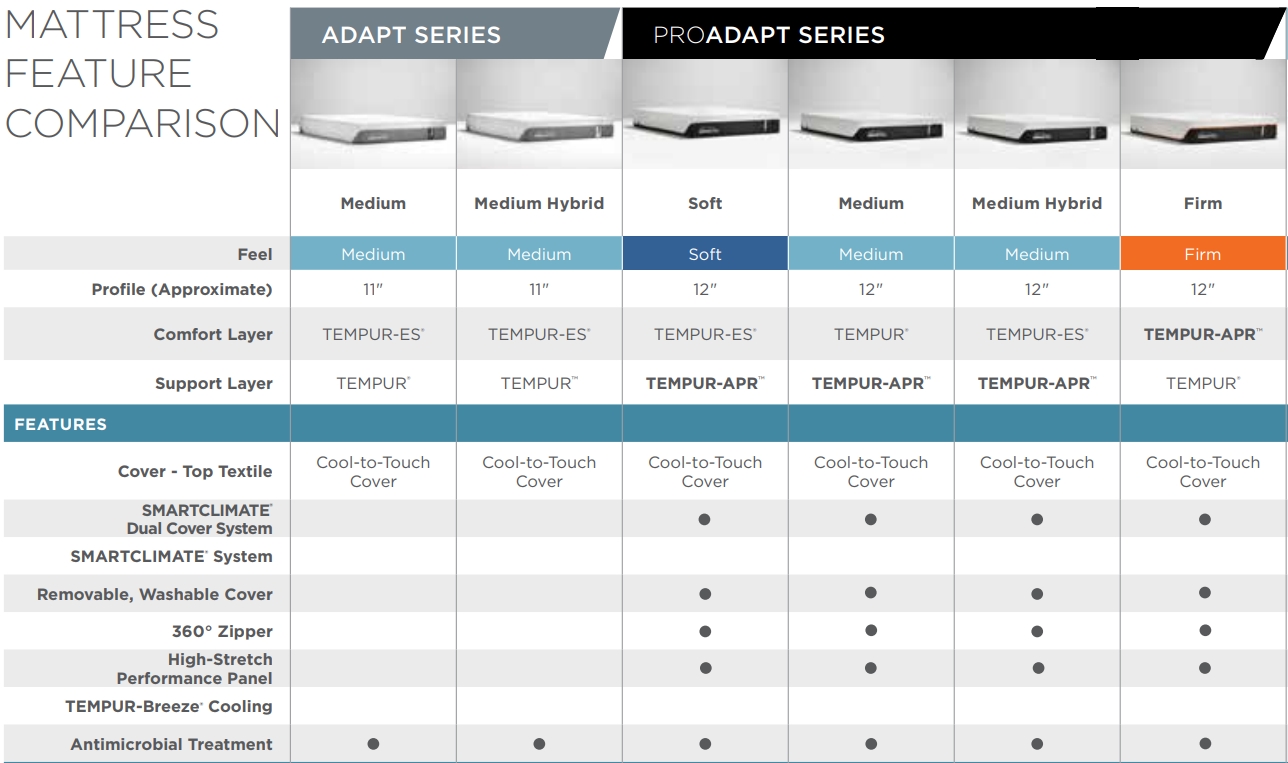

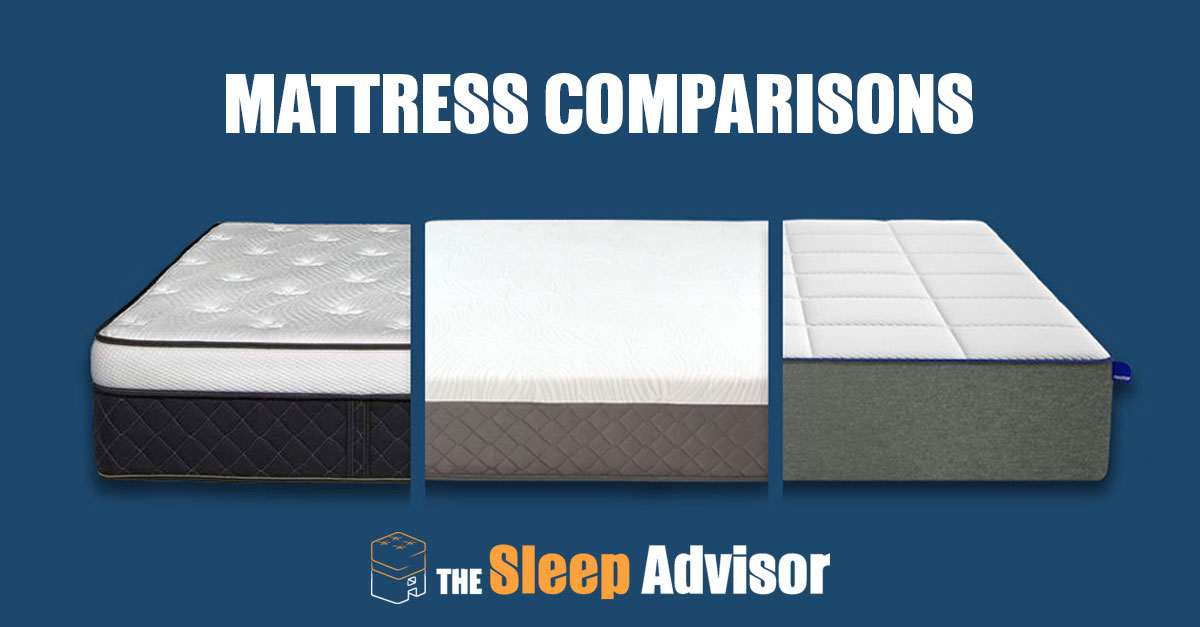
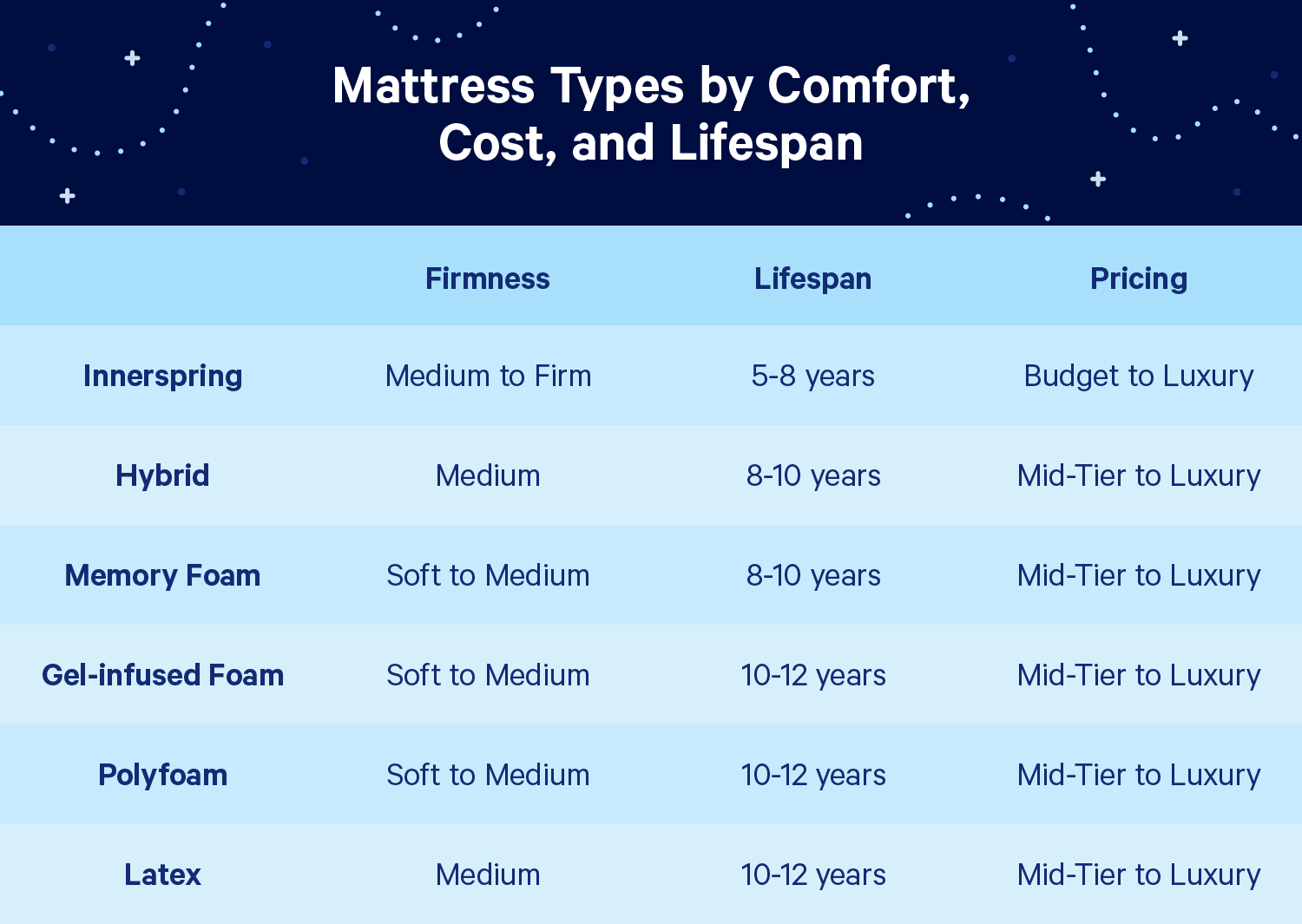
/Compare-Mattress-Sizes-578641683df78c1e1f4f1411.jpg)







